#It's so hard for many modern people to empathize with people from history
Explore tagged Tumblr posts
Text
youtube
This is the most romantic letter of all time and never fails to bring me to tears
#Ken Burns Civil War#Sullivan Ballou letter#It's so hard for many modern people to empathize with people from history#but it is the most important thing in the world to me to feel deeply for people from our past
7 notes
·
View notes
Text
/r9k/Elsa Ten Years Later: A Retrospective
Ten years ago today, on July 22, 2014, r9kElsa is Suffering was completed.
If you're reading this, you probably already know the gravity of that event. Let's talk about it anyway :)
r9kElsa is Suffering was one of the earliest fan fiction works written for Frozen, its first chapter published only a few weeks after the movie's release, and was decidedly the most influential.
It was the first widely-read modern-alternate-universe take on Elsa's and Anna's characters, and the way it painted their relationship into a reluctant and tragic romance almost singlehandedly inspired the wider Elsanna ship.
Despite its legacy, it's not the most practiced prose, nor is the plot meticulously planned.
So why did it leave such a mark on its audience? And how was it conceived?
Come with me back to 2013 and we'll find out.
A History
Frozen was released on November 27, 2013, to unexpected critical acclaim and unprecedented box office success.
The internet was quickly buzzing with thoughts about it. A hundred communities in the far-flung reaches of a simpler Web gathered in their respective forums to articulate what the movie meant to them.
Within a few days, a few thoughts began to coalesce in many different places at once: these characters are important to us. They're relatable. They're inspiring.
And, in some strange new way, the scattered diaspora found that the message had spoken to their hearts: love is stronger than fear. There is hope.

The first Frozen fan fiction to gain any traction was "Songs of Ice and Snow", published on November 23 by a lucky author with the privilege of seeing a pre-screening of the movie. It would go on to reach almost 140,000 words over the next several months, and explored the characters in their canon environment, written to take place immediately after the events of the movie.
Soon though, another fic was written with a bold twist: For the First Time was published on December 3, and suggested something previously unexplored: a romantic angle to the sisters' relationship. Niche artists and shitposters had already asserted the notion, but this very early work fleshed out the idea into something surprisingly charming. If love is an open door, then For the First Time opened it just a crack, and readers everywhere were tempted by the glow from beyond.
One specific forum that was quick to latch on to the hard-to-swallow concept was /frz/, a thread on 4chan's /co/ dedicated to Frozen. The trolling effortlessly began to morph into ironic, then tongue-in-cheek, and finally occasionally genuine consideration of what this romance would mean. The trolling never stopped, of course; but in the margins, there was a growing understanding and even affection for this relationship. Why?
Like so much well-loved fiction, it was because people saw themselves in it.
In Elsa, some saw a shut-in who just didn't want to be ostracized anymore. Some saw a dutiful figure who couldn't allow herself to be happy.
In Anna, some saw a socially awkward romantic, starving for affection and acceptance. Others saw an endlessly forgiving empath.
And in both, they saw someone who might understand them.
And in that moment, they fell victim to the fantasy: that two people could be so different and yet could love each other so unreservedly. That two people could understand each other's failings and doubts and grief, that they could be so wounded by each other, and at the end of it all, still sacrifice everything for the other.
In a world of cynicism and transactional relationships, it turns out that these sisters bound by blood scratch an itch: a need to be accepted despite all our flaws. And in some corners of the internet, there grew an quiet desire to be loved like that.
It was in this context that an anonymous /co/ reader, usually only browsing the board for DC comics, began to engage with /frz/. She hadn't ever written fiction before, but at the moment unemployed, was sucked in by the concepts being set forth. She wrote a first chapter that was an exceptional attention grabber, starting with the line "She heard the crossbow bolt thud into her shoulder before she felt it." Many readers will recognize that opening line immediately from Frozen Fractals. The first chapter was initially published in a pastebin for /frz/ to read, on December 6, with promises of violence, cuteness, and sex. Despite very little initial response, the anon is fully engrossed in her work, and posts the next few chapters in the following two days.
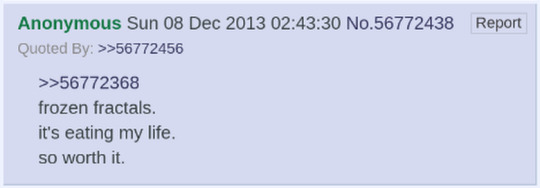
Over the next couple weeks, Frozen Fractals becomes the foremost image of the romantic portrayal of the sisters. The writing style is unpracticed, the character choices sometimes stretch disbelief, and the story is occasionally brutal; and yet, the work is outstanding.
The critical response is enormously positive, even reaching the point of other fiction authors in /frz/ asking the author -- having at this point earned the nickname "Fractals" or "Frac" -- for writing tips and constructive criticism. Additionally though, there are some constructive criticisms offered back, which undoubtedly aided Frac's later work.
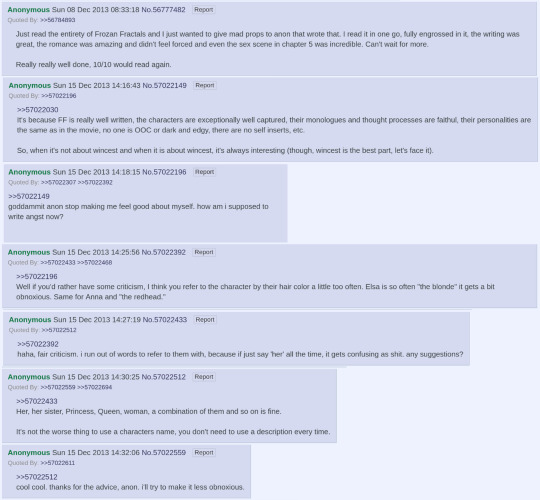
During this same period, the image of Elsa being a broken, self-doubting recluse, while Anna waits determinedly for her to open her door to the world, begins to take a more distinct shape in the /frz/ threads.
Anons start to see Elsa as one of them.

And so it began, slowly at first. But over the next couple weeks, this idea started taking center stage in threads.

And then, the first greentext from the character of /r9k/Elsa:
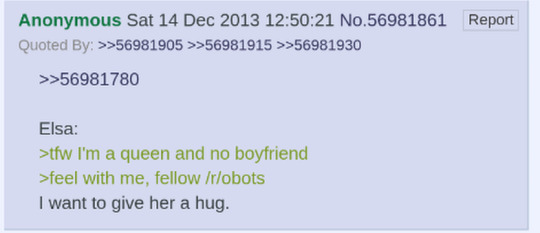
There grew a consensus, a common understanding of who this persona was.
It was initially tongue-in-cheek. But later, like Elsa's monster, it was often the person that we most fear to be.
And the storm raged on.
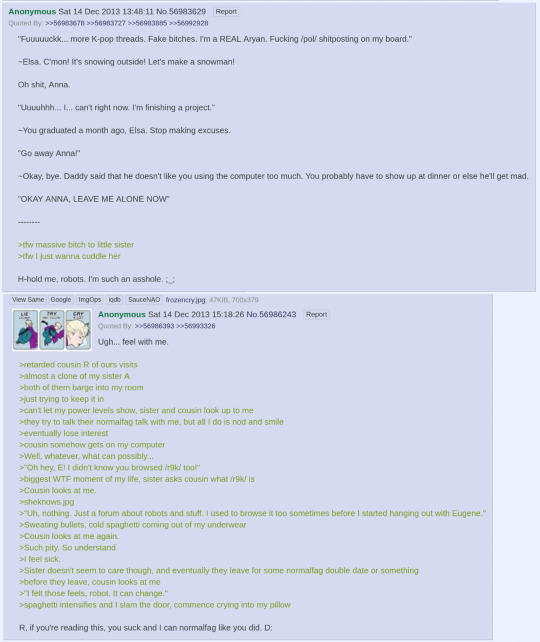
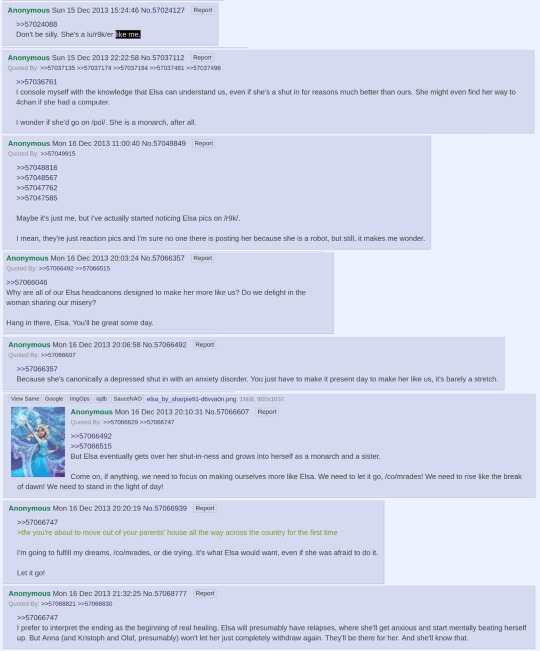
Then, the next day, a turning point is reached: a greentext that realizes the core of the character. These 12 lines precipitated years of community fixation and the story that would come of her.
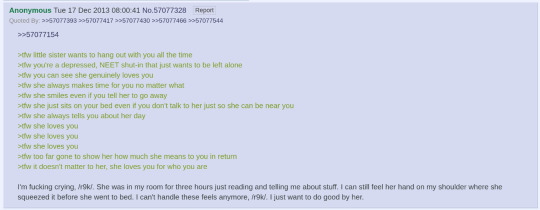
And the rest is history.
Over the next few days, an onslaught of r9kElsa greentexts are posted. For a short while, threads are overwhelmed with discussion of the character. People can't stop talking about it.
Some suggest temporarily banning it from threads so as to stop derailing every discussion.
Despite the proposed ban, some discussion continues behind spoiler tags. Frac is wrapping up Frozen Fractals and becoming increasingly engrossed in the character.
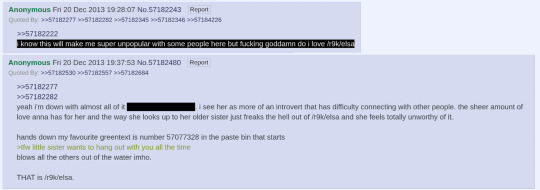
Then, finally, on the Winter Solstice 2013, Elsa's first birthday, tfw She Loves You is posted on Fictionpress.
Frac posts it under an alias in an ultimately-doomed effort to fly under the radar.
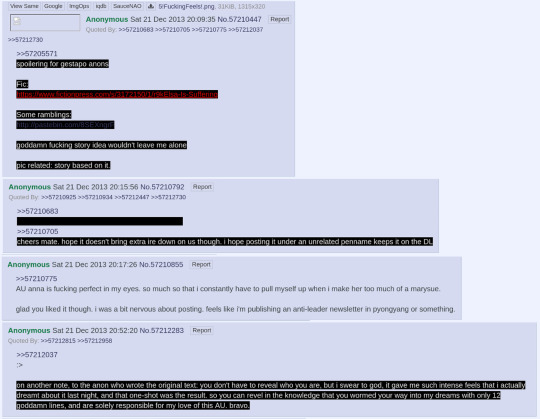
Over the next few days, up to and through Christmas 2013, Frac cannot stop writing. She writes ELEVEN CHAPTERS in four days. The rest of /frz/ is caught up in the r9k storm right along with her.
And then, there's a pause. A couple days go by without update. Finally, a few days later, chapter 12 Drawfriend is posted, and Frac seems a little burned out. Anons ask her what's up.
She realizes that her story is beginning to diverge from the greentexts that /frz/ has written. What started as a collection of one-shots based on scattershot 4chan replies is beginning to feel more important than that. None of the offered greentexts are hitting the spot like they used to. Somehow, the characters need more.
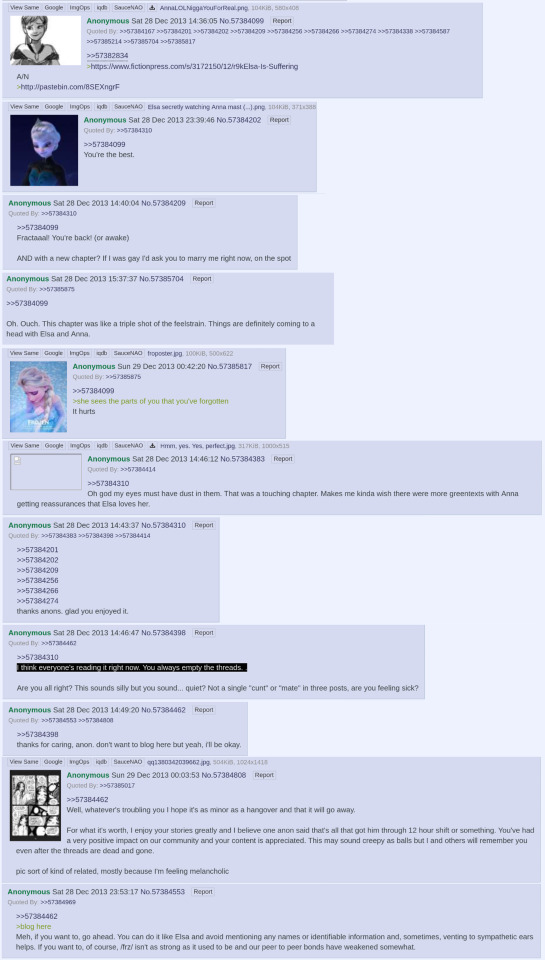
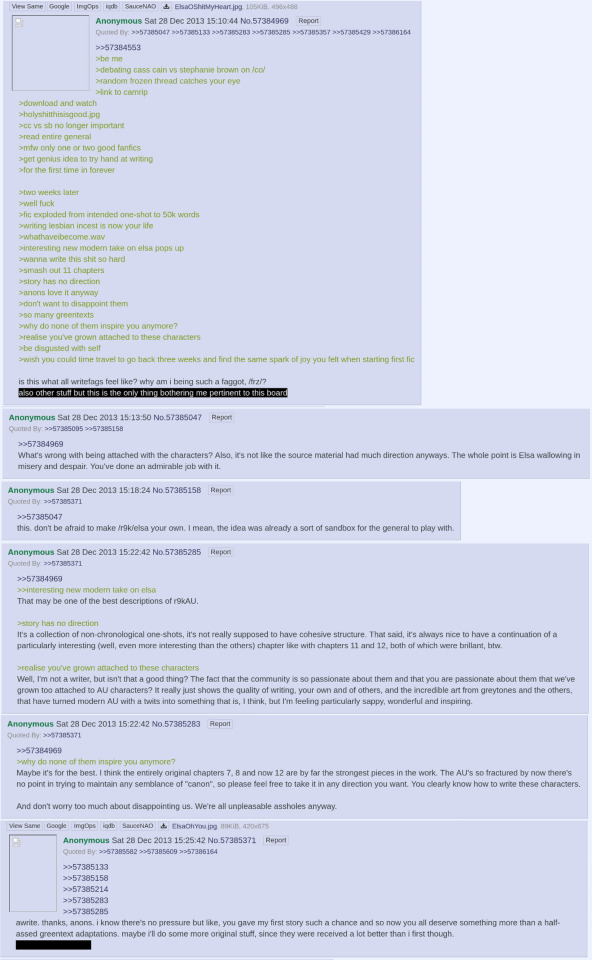
From this moment onward, Frac takes a new direction. Only a couple chapters after this point (16 and 21) are based on greentexts, and even those are loosely adapted. Instead, the fic ceases to be a collection of one-shots and starts forming into a true story, the story that everyone now knows and loves.
She posts the next chapter the same night. Chapter 13 Past is in the Past is a unique installment in the series, going back in time to detail the moment Elsa believes that she fell for Anna. It briefly scales back the angst and drama, and gives a cute slice-of-life of a simpler time for the characters. Some consider it the most human chapter in the story.
From this point on, the story progresses in a remarkable way. In case you haven't read it, I'll avoid too many major spoilers here. But as you can imagine, certain chapters (like 20: Implode-Explode) prompted clamorous reactions from the /frz/ threads.
After a few more weeks, other sites start taking notice of what's happening here. Tumblr picks up on the fic and begins rallying behind it. Artists begin painting r9kElsa portraits. It's when r9k starts wrapping up that r/Elsanna is founded and starts gaining traffic.
Other well-known stories also start being published once r9k hits its stride. During a very short period between mid-January and early February 2014, you see Extra! Extra!, A Formal Arrangement, Feel, Don't Conceal, Drum Major, You Are, A Snowflake in Spring, Winter Girl, the Cake Fic, and others published for the first time. Almost every modern-AU fic can trace its characterizations at least partially back to r9k. In some cases, e.g. Tessellate, much more than partially!
A Reason
If you read any post or thread from any Elsanna community in 2014, you'll find one thing repeated over and over: r9kElsa is Suffering brought me here. The story is the most common elevator pitch for the ship, because especially at that time, it meant something more to people than just sexy cartoon girls (though it undoubtedly meant that too).
In a world of isolation, where many traditional sources of community have been whittled away, people are desperate for hope.
This is the core of why Frozen succeeded so tremendously.
It came at exactly the right cultural moment, when both adults and teenagers the world over were feeling more alone than any prior point in history; and it showed that there's a reason to open your door. Even when you're feeling like there's no way out, like no one could ever see past your faults and doubts, you can remember that there IS hope. It's not in Prince Charming or a genie in a bottle. You can have hope in knowing that there are other people, broken in their own ways, who WILL love you for you. Unreservedly.
Frozen has been criticized for its resolution being too easy. "Love," they say, "what a shallow fix for everything!"
They are wrong. Love is an anomaly of nature. It breaks every rule. It is supernatural and spiritual and it is real life magic. And realizing that you can always choose to love the fixer-upper beside you is the surest way to thaw your own frozen heart.
r9kElsa is Suffering has likewise been criticized for its ending. Readers wanted to see something sexy, thrilling, or at least certain. Instead, they got something ambiguous and thoughtful.
Personally, the last two chapters are my favorites of the whole story.
We see a broken family trying to piece itself together. We see a father reckoning with his abject failure, and seeking a new way of living with his family. Any parent would feel overwhelmed, angry, afraid in that situation. He doesn't want to be consumed by fear and frustration. He just wants to love his daughters. And he does. Even after everything, he does.
And critically, he trusts Elsa to make the right decisions, even when he himself doesn't know what they are anymore.
And then, ultimately, in the final chapter, we read a beautiful mirror of the first. Elsa is in her room, but the curtains aren't shut anymore. Sunlight streams in through the window. Anna enters freely, their tension long released by their figurative walls having been dismantled.
In an often-overlooked moment of clarity, Elsa ceases to be consumed by her preferred method of isolation, her computer. Whereas in the first chapter, she can't look Anna in the eye, and only stares at her ever-illuminated computer screen; now, she does something new. She turns off her monitor and momentarily contemplates her reflection in the black mirror. Who is the woman she sees staring back at her?
She would be unrecognizable from the girl who sat in that chair six months before.
Finally, in the last moment, Elsa is faced with making the "right decision".
Unburdened by fear or requirement, she is prompted for the first time to determine honestly what the right thing is, for herself, for Anna, for their family.
She hesitates. What is right? Is it right to push Anna away?
She decides. She loves Anna, and she's never going to erect a wall between them again.
Her father asked her to remember what's important. Anna is what's important to her. All of the rules, all of the shame, all of the worries -- they don't matter.
You love her, and she loves you. That's all that matters.
Dear reader: today, now ten years older, remember what matters to you. Love the people in your life. Love boldly and selflessly and unreservedly, and frozen hearts will begin to thaw.
- tfwyouloveher
---
A/N: many thanks to the people and resources that made this retrospective achievable
frac, also known as @kate---kane and anonelsa, who so many of us have to thank (or curse?) for our years spent in this community
desuarchive.org and archived.moe make this digital archaeology possible
/frz/ will hate me for posting their activity across the web but I don't mind :)
there is a wealth of fascinating and entertaining material in the /frz/ threads of these archives. I spent weeks reading through old threads long considered lost for this post
neiromaru and @spooths are among the top connoiseurs of frozen fanfiction, and their ancient lists made this research much easier
the various archivists on r/elsanna and elsewhere who saved so many important pieces of fic history before they were deleted
the dropbox and mega archives were instrumental
enormous thanks to my editor, who ended up rewriting most of this post, but who wished to remain anonymous. seems unexpectedly appropriate :)
35 notes
·
View notes
Text

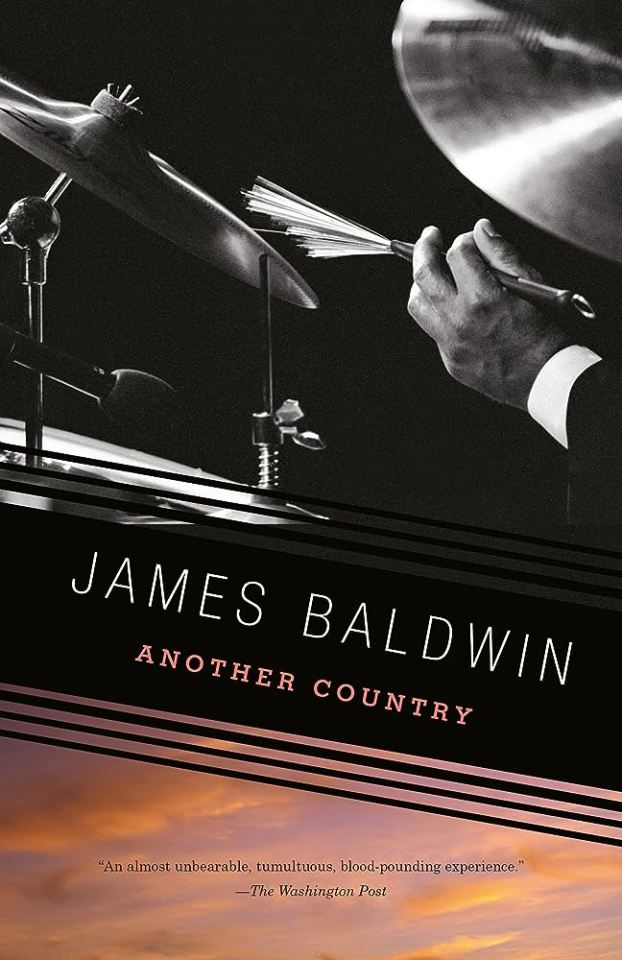
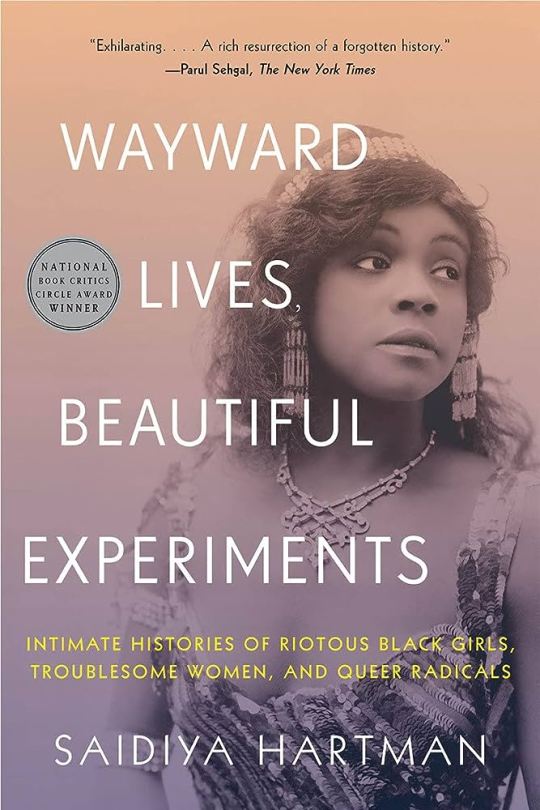
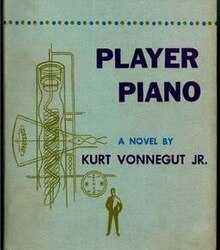
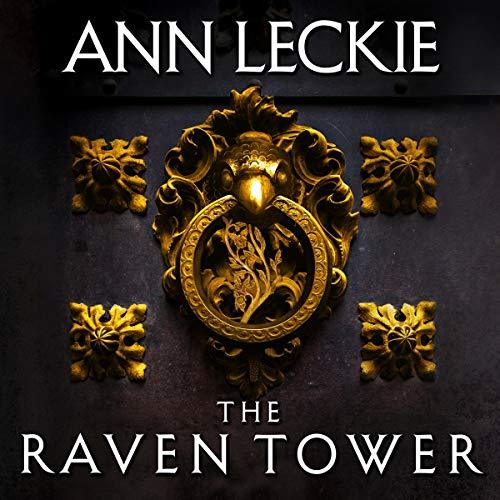
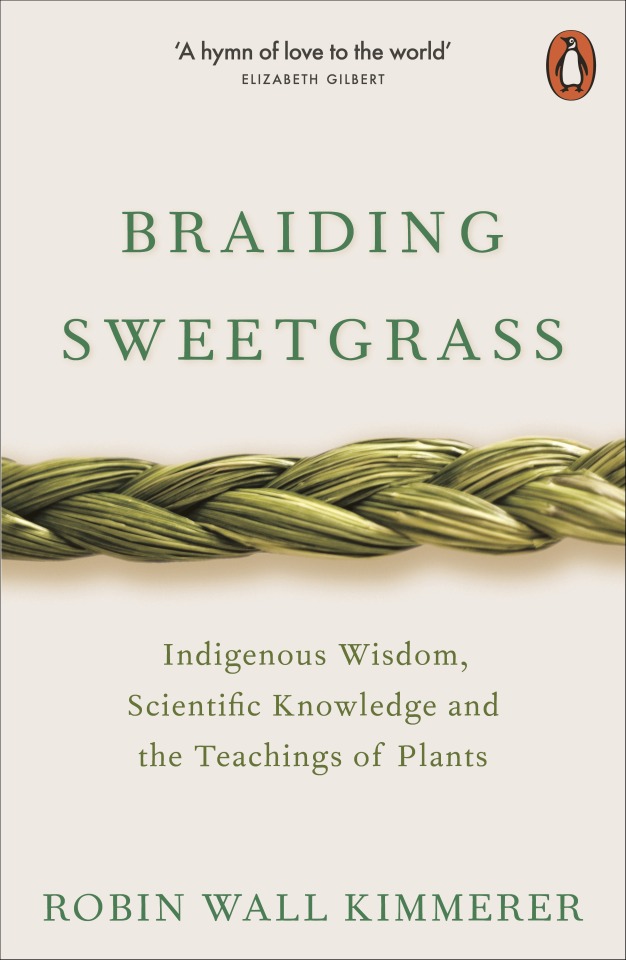


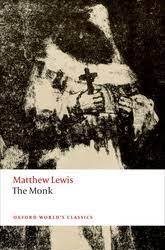
tagged by @cosmicrhetoric (thank you isha <3) to post nine book recommendations. I would literally die for some of these books
The Heartbeat of Wounded Knee, David Treuer: This is a Native American history book that tells the history of what happened after the massacre at Wounded Knee, leading up to modern native history. Because so many history books only tell about the massacres of Natives, an overwhelming amount of people don't know anything about modern day Native history, or about the time between Wounded Knee and now. I recommend this book to anyone who wants an introduction into more contemporary Native issues. The book does a great job of being clear with all of its information while still telling a compelling narrative that doesn't just end in death. I also was lucky enough to talk with the author about this book and his other work and it was a super cool experience, definitely recommend his works.
Another Country, James Baldwin: I struggled with deciding which James Baldwin book to put on here, because his work is consistently good and interesting. I ended up picking Another Country because it's just to be one of those books that manages to have a little bit of everything in it. In my mind, this is the Platonic ideal of a litfic book. It's brutal to read, in that way that only really James Baldwin books can be. There's so much about this book that I could talk about but just can't get into without starting to talk about a million other things that are equally meaningful and impactful. I honestly cannot even tell you what this book is about without just reciting the entire thing back at you so. Just trust me on this one.
Wayward Lives, Beautiful Experiments, Saidiya Hartman: This book quite honestly blew my mind when I read it last year. This book uses archival material to create fictionalized reconstructions of the lives of Black girls from the early 20th century that history forgot. The only evidence that some of these women even lived at all is a single photograph, or one surviving court room document. This book makes you empathize with the lives of people that history tried its hardest to make you forget, so that the reader is forced to find beauty in ways of life that run counter to our cultural narratives of the era.
Player Piano, Kurt Vonnegut: I also had a hard time picking which Vonnegut book to put on this list; real ones know that I'm a really big fan of his work. I chose his debut because its really underappreciated. This book got me back into reading after I burnt out in the middle of high school. It's a cautionary tale about automation (which feels more relevant now that AI is becoming a thing) and it really captures that classic scifi feel that i just can't get enough of. Its a silly, quick read, that fills you with the beautiful melancholy that Vonnegut books are so good for.
The Raven Tower, Ann Leckie: I couldn't post book recs without at least one fantasy pic, and I honestly love this one. It's a fantasy retelling of Hamlet focusing on gods that gain more power the more followers they have. It's a simple premise that the book manages to pull off incredibly well. Personally, I'm a really big fan of the second person pov sections of this book (second person pov is so sexy do not @ me on this). The treatment of the gods in this book is absolutely my favorite part, and I think it manages to combine with the main narrative very well. It's a very fun read.
Braiding Sweetgrass, Robin Wall Kimmerer: God I love this book. It's been a few years since I've read it, but it completely changed a lot of the ways that I looked at the environment and at how our society treats science. This book is a nonfic about how Indigenous knowledge is often dismissed in scientific discussions as being invalid. This book argues that scientific knowledge and Indigenous knowledge are not mutually exclusive ways of knowing, and that combining these approaches is the way forward for environmental study. Also along the way you'll read absolutely gorgeous descriptions of American plants, and the ways in which people can build connections around them.
Nature Poem, Tommy Pico: This is the first book of poetry I ever loved, and the only book that I keep saved on my phone, just in case. Basically, the one sentence description for this one is that its a book about a queer ndn poet who can't bring himself to write poems about nature. This book is part of a tetralogy but can be read standalone with no real barriers. If you like this one I highly recommend checking out the others too. These are the kind of poems that you binge in a day and think about for a month straight.
Frankenstein, Mary Shelley: How could I not recommend Frankenstein rn. If you haven't read it, read it. You already know what its about, and that it is without exaggeration the sexiest book of all time. So read it. Not optional. This book has changed my life like five times over and I honestly can't trust anyone who can't admit that it rules.
The Monk, Matthew Lewis: THE MONK THE MONK THE MONK THE MONK THE MONK THE MONK!!!!! No one does it like her !!!! This is quite literally the most batshit insane book I've ever read, and I love it. I'm writing a thesis about this book. I told my advisor that I wanted to write about it, and then she immediately told me that if I was going to write about it, then she HAD to be the chair of my thesis committee. Every single person who reads this book is cursed to be a more weird version of themself who tells everyone they meet that they should read The Monk. This is the ultimate Gothic story, about a monk (holy shit) who is renowned for being uncorruptible, who upon meeting one (1) woman, is immediately overcome with lust and corrupted. I cannot stress enough that I have no way of determining if this book is even good, but it is the MOST book you will ever read. Please read the monk.
tagging blue @glasspigeons you don't have to do all nine but I at least want a top three
#elena.tag#elena.txt#also shoutout to JANE EYRE for being my number one girl of all time#I couldn't justify cutting anything from this list but i need ppl to know she is my forbidden number 10 pick
2 notes
·
View notes
Text
I am feeling eternal guilt for this message being stuck in my drafts for MONTHS. 🤦♀️🤦♀️
I can only humbly apologise. First and foremost, your feedback always ALWAYS floors me - you see things in my writing even I didn't realise were there until you point them out, and that is fascinating. 🥹🥹🫶 I am an instinct writer, and sometimes I don't even see the patterns until after I'm done. You deserve a response as detailed as yours so, let me dive in:
The opening scene was so clear in my head as a way to economically show their friendship and explain its history. I wanted something naturalistic, not the pomp of the event itself but the casual chat between friends that happens in the quiet, tired moments after a hectic few hours - something they have obviously both been working towards for many months. That's when the magic of a connection truly reveals itself, isn't it? A partner for life isn't the one who is there in the memorable moments; it’s the one who makes the small moments seem memorable.
Yes, I wanted to show Benedict as the effortless empath he is and a hint that maybe friendship isn't all he is interested in. The airport scene was indeed another way to demonstrate that charm is effortless to him, just who he is, which means he is more than the man for the job he has ahead of him when they meet her family.
Another part of “Ben the Empath” is indeed when they finally arrive, and he intuits her needs before even she can see them herself (to steal a line from Anthony in the show, lol!). Realising this is going to be a challenging moment for her and instantly stepping into the doting boyfriend role. And yes of course, it's a very convenient excuse for him to cuddle up to the lady he obviously is into, even if she can't see it quite yet.
The first goodnight kiss, I wanted to be in front of her family as there is that inherent delicious tension - they have a convenient excuse to indulge in a touch of PDA, but the audience tempers it.
I'm glad you picked up on the nuance of communication differences between family members and fellow spouses - I think in ‘big personality’ families, the spouses will always bond a little on what it's like to be married into this crazy. I’m sure all the Bridgerton spouses feel the same lolol.
And yes, I wanted to convey as the story goes on how they both seem almost to forget it's a ruse when caught up in the heat of the moment of pretending to appear as a couple. It's the blurring of truth and ruse that gets them in the end, after all. Like Benedict defending her - there was zero acting there. He is a staunch guardian to those he loves without even realising it. Coupled with that charm, he can put people in their place, but they are almost thankful for it. I really wanted him to both charm her mother but also not quite chastise but let her know he disagrees with the opinions they have about the reader.
As to how I write him sweet and challenging? IDK, to be honest, lol. I just write the Benedict I hear in my head. Honestly, he just lives there rent-free. It's not that hard to transport him into modern times; the vernacular and clothing might be different, but it's still Benedict underneath it all, lol. Or at least the headcanon Benedict I have built off the scraps they have given us on s1 and s2.
And yes, if there is one thing I try to strive for, it's realism during sex. People talk, and the pace slows and quickens, it can be languid one moment, frantic the next. But I always try to make it passionate and intimate and yes, a little unhinged, cos when you are in the moment and it's that good, there is indeed an edgy quality to it that is surprising and addictive. In straight sex, I love to write the man as just as desperate, if not more so, than the woman. And I love it when the man just straight up says don't be embarrassed this turns me on soooo much, like that whole moment you highlighted.
I had to round off with some Christmas morning fluff, which shows how sweet he is and the promise of more to come. Which, YES, I will be writing. This Christmas, I plan to write the sequel.
Anyway, sorry I rattled on; I wanted to respond to many of the things you mentioned. I'm so happy you loved this, and I'm so sorry my response has taken months. It was sitting in my drafts for far too long. I feel honoured when you ask me to write something and I hope you will do so again in the future. It's truly a privilege to write people’s stories. Thank you again, my dear. Your feedback always truly stuns 😁🧡🧡
It's That Time Of Year
Pairing: Benedict Bridgerton x fem!reader, modern AU
Summary: It's that time of year... when you could use a fake boyfriend.

Warnings: 18+ smut, minors DNI, oral sex (m to f), vaginal sex, dirty talk, hand as gag, quiet sex, sex in childhood bedroom. Fake dating, family dynamics, lots of feelings, friends to lovers.
Word Count: 11.3 k (eek Im sorry)
Authors Note: Here's my tropetacular winter 2023 Benepic! Request fill for @broooookiecrisp (HERE), who wanted fake boyfriend trope with Benedict accompanying the reader to the USA to spend Christmas with her family. I hope you like it, my dear. Thanks to @colettebronte for the read-through. Enjoy and happy holidays! 🎄

December 20th
“Thank you,” Benedict clinks his champagne glass against yours, “for everything.”
You blush and look down from his intense blue-eyed gaze, staring instead at the untied bowtie around his collar that seems almost more attractive than when fastened.
“It was nothing,” you demure.
“It was not nothing!” he scoffs, giving you a gentle shoulder bump as you both lean on the high-top table.
“Alright, it was my job then,” you modify, giving him a modest smile as you hotch slightly - beautiful though they are, you cannot wait to take off these high-heels.
“And you are excellent at your job,” he asserts before downing the rest of his champagne and refilling both glasses from the bottle before you.
He is lingering much longer than you thought he might, long after all his family and all the guests have left. The event was over a while ago, and all around you, the venue staff are clearing tables and stacking chairs.
Tonight was indeed a rousing success. Your first-time event managing the end-of-year fundraising gala for the Bridgerton Family Foundation, they hit a new record amount raised. Standing next to you is the newly minted CEO of that organisation, Benedict Bridgerton, looking far too dashing in his custom-fitted tuxedo. Empathetic and naturally in tune with the needs of others, he is indeed the perfect replacement to run the charitable arm of the family business now that his mother has decided to retire. In previous years, you both took deputy roles - him to his mother, you to your old boss - this was the first year you both stepped up to the plate to run things, and if you do say so yourself, you have both done an excellent job of it. A delightful working partnership built on years of friendship since meeting at university as an exchange student.
“You deserve a long Christmas break after this,” he breezes.
“Going home to the States in a couple of days,” you nod. “I’m both looking forward to it and dreading it in equal measure, to be honest,” you confess, this second glass of champagne acting like a truth serum. You didn't want to or even get the chance to drink earlier, but a little tipple to round off the rewarding night is lovely, especially in present company.
“How come?” he seems genuinely curious, his forehead knitting adorably. Of course, he wouldn't understand; he comes from an idyllic family.
“I am very much the black sheep,” you shrug, twirling a finger absent-mindedly around the rim of your glass. “Being childless, unmarried and single at thirty-three in a midwestern family is unheard of and thus the subject of much ridicule.”
“Wow,” his eyebrows shoot up, “that's…,” he hesitates.
“Judgemental? Parochial? Small-minded?” you supply dryly on his behalf.
“I was going to say traditional… but sure, those work too,” he chuckles.
You giggle a little, then sigh. “So a mixed blessing, really. It's nice to see them all; I just wish they were a bit less them, you know?” you gesture vaguely into the air.
“A boyfriend would really take the heat off?” he queries.
“Hah!” you can’t contain the bubble of amusement at the mere thought. “Chance would be a fine thing. But, yes, that likely would take the edge off the worst of their barbs.”
“Well, I’m at a loose end,” he comments, seemingly changing the subject. “The family is spread to the four corners of the globe this Christmas. Mum is going to Costa Rica for a retired ladies' trip with Lady D. Don't ask,” he adds amusingly, holding up his hands. “Kate and Ant are taking their kids to Lapland, and my various siblings are travelling or staying with partners. Weirdly, it’ll be our first Christmas apart. At least we will all reunite for New Year's at Aubrey Hall.”
“Aww, that sounds nice,” you offer neutrally.
“What I'm saying, y/n, is…,” he continues slowly as if waiting for the penny to drop, “if you need a fake boyfriend, I am available. It’s the very least I can do after all of this,” he explains, gesturing around the room. “Plus, it might be novel to experience a typical American Christmas,” he shrugs casually.
You can’t help it; you gape at him. Completely floored. The idea is utterly left-of-field and yet so exciting your heart pounds. If there is one downside to working so closely with Benedict these last few months, it has been the exponential growth of your inappropriate feelings for him. He is so sweet and handsome; no one would be immune, frankly. It was bad enough when you were at university together; now, well, it’s slightly lethal. Your mind boggles at him playing the role of a doting boyfriend; your body, however, seems very enthused, a warm flush creeping over your skin at the mere thought.
He chuckles nervously, a likely reaction to your stunned silence. “Listen, it was just a silly suggestion; you don’t have t-”
“Yes!” you squeak, interrupting and grabbing his jacket cuff boldly when he seems to be withdrawing. “Please,” you add almost as an afterthought, unsure how to thank someone for such a generous offer.
His face breaks out into the most handsome grin.
“Excellent! Then, it's a date!” he exclaims, tilting his glass towards yours again. “Well, a fake date,” he amends with a lopsided grin that makes your stomach flip.
Oh god. What am I letting myself in for?!
___
December 23rd
“Are you sure about this? You can still back out...” you offer, fidgeting in the bag-drop queue at Heathrow three days later.
“Please. What else am I going to do? Sit around my flat, billy-no-mates, and eat a sad M&S ready meal?! You are literally rescuing me,” he counters, probably exaggerating for your amusement.
Very much following the motto of not looking a gift horse in the mouth, you had texted Benedict your flight details that same night, and he has made it all happen in the hours since. Somehow, he managed to wave the Brigerton magic wand and secure what was probably the last seat on your direct flight two days before Christmas. Unluckily for him, he has to slum it in economy with the rest of the plebs like yourself. He couldn't even get a seat near you; he's stuck down the back, in the middle, near the galley.
“How about we swap seats at least?” you offer, guilt creeping in, looking at your printed boarding pass. Not only is Benedict doing you a favour, but he’s also pretzelling his tall self into an uncomfortable seat. The least you can do is offer him your aisle seat.
“I’ll be fine,” he dismisses, waving a hand and fishing out his passport as you are called to the desk.
“Travelling together?” the pretty, painted lady breezes at you, holding out a perfectly manicured hand to take your passport and ticket. Then you watch her practically melt as she claps eyes on Benedict.
Tsk. Typical.
“Not exactl…” you begin.
“Yes,” he cuts in with a winning smile. “Sadly, we couldn't get seats together, though,” he pouts a touch theatrically.
“Oh! Well, let me see what I can do about that… It is Christmas, after all,” she winks at him conspiratorially, then taps on her keyboard.
A few minutes later, your bags are checked in, and you are upgraded to Premium Economy. The lady was apologetic that you still couldn't get seats together but a row apart instead. You are pretty sure if there was space, the handsome bastard would have gotten you upgraded to business without even trying.
Oh, to be a pretty Bridgerton.
___
Twelve hours later, you are in a taxi, tired but grateful for the additional legroom on the flight, even managing a few hours of light napping. Benedict is similarly sleepy, both of your heads lolling around as the car zips down the road. By the time you reach your family home, it’s evening, but to your body clocks, it's the middle of the night.
As you slide out of the taxi, a long arm wraps around your shoulders, and you startle.
“Best to look convincing from the off,” Benedict mutters as he throws his duffle bag on top of your suitcase and trundles them up the path with his other hand.
You nod and dutifully wrap your arm around his waist over his puffer coat, slightly annoyed at how good it feels, as if your arm belongs there.
“This is so American it's almost a cliche,” he jests, looking up at your parents' house, holiday string lights twinkling in the dusk.
You giggle at his remark and bump him with your hip, quickly escalating into a friendly tussle. He hauls you into his arms and swings you in front of him.
“What are you doing?” you whisper, your limbic system alive at the feel of him pressed into you even behind heavy coats.
“Just go with it,” he responds with an easy confidence and that dazzling smile. As if in slow motion, his lips descend, and you reel as they lightly brush yours, an explosion behind your ribs at this passing touch.
Over your shoulder, you hear the front door opening and realise it’s for show, for a particular audience. You are grateful for the forethought but completely discombobulated from this partial kiss.
How am I going to survive a week of this?
“Mrs y/l/n, Mr y/l/n,” he calls as you linger in his arms, not wanting to turn around just yet.
“Well, hello there. This must be the famous Mr Bridgerton,” your dad's opening line. “We have heard so very little about you. Before yesterday anyway,” he adds, already twisting the knife in early as you pull up to the porch.
“That may well be because I asked her not to,” Benedict rebuts smoothly, releasing you to give a firm handshake. “I love the element of surprise,” he adds with a smile you have seen him deploy before, a weapon’s grade charm offensive.
Your mother’s face is a picture. “Well, well, we certainly didn't expect someone quite so handsome to accompany our daughter,” she drawls, verging on flirtatious.
Benedict drapes his arm around your shoulders and nuzzles your hair. “Whyever not? She is simply wonderful,” he sighs, his hot breath tickling your scalp before letting you go again.
Damn, he is good at this.
“Hello, mom, dad…” you greet politely before moving in for a short hug from both.
“Happy holidays, darling. Let's get inside,” your mother fusses.
Within a few minutes, after some casual pleasantries are exchanged as you remove coats, you watch your mother give Benedict a tour of their home, including, to your chagrin, your childhood bedroom, which is a time capsule from your teen years. At least the dog-eared band posters have been taken down. As you drift back to the living room, Christmas music plays from a speaker behind the tree. Your family loves to go all out on the holiday decorating. It does feel festive and cosy, though.
“It will be a full house with all of our kids and their spouses staying tonight. So there are no spare rooms. You are on the sofabed in the den, Mr Bridgerton,” your dad comments, gesturing to the room next door; the message very clear.
“That's fine,” Benedict huffs genially, “and please, call me Ben.”
“I might actually head to bed now,” you admit over a stifled yawn. “My body thinks it's 2am.”
“Same,” Benedict chimes.
“Oh, you should stay up, try to get into the timezone,” your mother clucks, always with an opinion about how you are not doing things how she would. “Ben has not yet been introduced to Tucker, Travis, Tegan and their spouses. They are all still out at dinner…” she indicates, listing your siblings and looking most perturbed at your decision.
“Tomorrow, Mom,” you assure.
“Alright,” she capitulates with a sigh, mostly when she sees Benedict yawn behind his hand.
“Goodnight…” you offer to all and go to leave the room, but as you get to the door, Benedict stops you with an arm shooting out.
“Don't I get a goodnight kiss, my love?” he pouts.
At first, you look up at him shocked, then a flick of his eyes over your shoulder makes you realise he is continuing the ruse.
“Maybe,” you flirt back, jetlag somehow making you daring. An ideal excuse to be coquettish, even though your parents likely can't hear your exchange above the music playing. They can certainly see your body language, though.
“Oh, I see. What do I have to do to earn it?” Benedict plays along, a dangerous smile and a large hand low on your lumbar spine, pulling you into him.
“Tell me you will miss not sleeping next to me,” you boldly request, a little cheeky smile tugging at your lips to see how far he will let you push this.
A long finger swipes a tendril of hair out of your face and behind your ear, a thumb curling under your chin.
“Every night I'm not sleeping next to you is my misfortune,” he replies, sounding wistful, his eyes seeming to burn with something approaching sincerity. It makes your stomach swoop like you are standing on a cliff edge on a windy day.
“Good answer,” you stumble in acknowledgement, pushing up onto your tip toes, heart in your mouth.
“I do what I can,” he answers against your lips and then draws you into a slow, plush kiss.
His mouth doesn't open, but it doesn't matter; the hint of wetness on his pursed lips has your body reacting, a charge ripping through your being. A sudden yearning for him to push you against the wall and plunder your mouth with his tongue. When he withdraws, you know your pupils are blown wide, but you are taken aback that his are, too; the dampness on his lip shines in the glow of the Christmas tree.
Your father pointedly clearing his throat breaks the spell, and you jump apart as if burned.
“Sorry,” you both mumble and Benedict pulls the most adorable ‘oopsie, my bad’ face.
“Goodnight, y/n,” he says tacitly.
“Goodnight, Ben.”
As you climb the stairs slowly, exhaling the breath it feels like you have been holding since he grabbed your arm, you know that kiss will be replaying in your head for weeks. If he keeps this up, you may well combust.
This was a fantastically bad idea.
___
December 24th
You awaken on Christmas Eve when it’s still dark outside. A glance at your phone says it’s right after 4:30am. Already knowing you won’t get any more sleep, you throw open your case and grab slippers and a hoodie, deciding to head down to make a coffee.
You almost jump out of your skin when you see a silhouette sitting at the kitchen table.
“Sorry,” Benedict atones as he sees you clutching your chest, “time zones.”
“Same… coffee?”
“Please…”
As you potter around, making a pot as quiet as possible, he scrolls on his phone. You join him once it’s brewing.
“How is the sofa bed?” you ask, wincing guiltily.
“I've slept on worse,” he obfuscates jovially.
“Sorry, if I’d known there wouldn't be a spare bed, I would have booked a hotel,” you apologise, rubbing your temples.
“No, it’s tradition to stay with family at Christmas,” he rebukes with a smile.
“Thank you again for all this,” you mutter, shoving your hands into your hoodie pockets. “Have you done this fake boyfriend thing before?” your question is only partially in jest.
“No, what makes you say that?” he huffs bemused.
“You, uhh, have been doing an excellent acting job,” you shrug. “Thank you, by the way. I don’t think they quite believe I could land you, but I’d argue you have been very convincing regardless….”
“Don't say that,” he frowns, cutting in.
“You don’t think they buy it?” concerned things may not be working as well as you believed.
“Not that,” he waves a dismissive hand, “the other thing. Why wouldn’t they believe you could ‘land me’?” he rounds off with a quotation gesture.
You bark a laugh. “Have you seen you?
“Stop,” he seems genuinely ticked. “That is all shit. I would be lucky to have you,” he mumbles, not meeting your eye, staring out of the French doors into the inky blackness. It won’t be sunrise for another three hours this time of year. “I am lucky, in fact, to have you as a friend,” he adds, his thoughts sounding far away.
“Well, same. I still have no idea how to repay you for all of this…” you admit.
“I already said, none needed. Why would I not choose a little foreign adventure with a good friend when the alternative is Christmas alone?!” he scoffs as the coffee machine beeps.
Unsure quite what to say, you get up to make a cup, knowing without asking how he takes his. Retaking your seat, you pick at the idea again.
“I think we should strategise…” you mutter into your mug.
“About what?”
“The plan. Now you have some inkling of what they are like, maybe we should talk tactics…?” you trail off, not sure even yourself where you are going with this.
“It's simple, isn't it?” he counters, taking a gulp of coffee. “We hold hands, hug and kiss occasionally, you know, act like a couple….” he shrugs as if it's the simplest thing in the world. Maybe it is to him; his heart probably doesn't pound when you so much as touch.
“Okay, well, I guess we can improvise. But let me know if it all gets too much. Send me a secret code or something,” you offer.
“Like a safe word?” he chuckles.
“Something like that,” you allow, trying to mask the heat you feel creeping up your sternum at the very thought.
Just then, his phone vibrates on the table.
“Sorry, it's Ant. I should probably take this,” he apologises, standing up.
You swallow a sip of your coffee, trying not to think too hard about anything, when suddenly he leans over your shoulder from behind, the phone still buzzing in his hand.
“By the way, my safeword is Byron,” he rumbles silkily into your ear. “Not that I’ll ever need it,” he adds, walking away casually while you try to bring your heart rate back to normal.
Dear God, this man is going to kill me.
___
You take your coffee back to bed when Benedict doesn't reappear after a few minutes and end up passing out again for a couple of hours. By the time you are awake again, the house is a hive of noise and activity. You pass Kallie, your oldest brother's wife, in the hallway, and she punches your arm lightly.
“Welcome home, and well fucking done!” she winks, and you frown, confused what she’s talking about. She jerks a thumb over her shoulder. “That delicious slice of Britishness in there,” she elucidates.
Shit! It just occurs to you that by falling back asleep, you left Benedict alone to fend for himself in the melee of your family. The poor man must be mauled alive by now.
So when you enter the kitchen, the last thing you expect to see is the sight before you. Benedict, with an apron on, tossing American-style pancakes like a pro on the hotplate while your family chatters around him, applauding as he serves up another perfect-looking batch.
“Darling!” he calls when he sees you. “Come here!” he exclaims warmly, holding out his arms.
Unsure what else to do and powerless to resist the opportunity, you walk over and allow yourself to be swept into his arms. He presses a kiss onto your cheek. He smells like butter and syrup, and you want to burrow into him.
“Sorry I left you alone in the lion's den,” you say close to his ear so only he can hear.
He smiles into your hair. “They are fine, honestly; I can handle it,” he assures mutely.
You pull back and swipe a tiny fleck of batter from his face, enjoying the round of his cheekbone as you do. What makes an odd weight land on your ribs is how his pupils dilate fractionally as you lick the dot off your thumb.
“Delicious, Mr Bridgerton,” again, unable to stop yourself from flirting with him now you have the excuse.
Something in him looks almost wild as your gaze locks.
“Get a room!” your brother, Tucker, jeers from the table.
Part of you wants to sass back some version of ‘apparently we’re not allowed’ and ‘I wish’, but all you can do is smile at Benedict as he mirrors your expression.
“More, please, Mr Brid-un,” your youngest nephew toddles over, holding up his plate expectantly.
Benedict finally looks away and ruffles the little kid’s hair. “Certainly, Brandon,” he offers warmly.
“What I find fascinating is how a proper British gentleman knows how to make good old-fashioned American pancakes,” your mother pipes up from her seat at the kitchen island.
“Oh, my nanny was an American,” Benedict waves the spatula as he pours more batter onto the hotplate and begins a new batch.
“Your grandmother was from the colonies?” Travis mocks, feigning outrage.
“Oh no… not that sort. My umm nanny nanny, as in the lady who looked after us as kids,” he explains, looking somewhat sheepish.
“Shhiittttt,” your sister Teegan drawls, looking up from her phone for the first time. “You’re like actual rich, huh?”
“Language Tee!” your mother warns from across the room.
Teegan pulls a face and then turns her attention back to Benedict, awaiting his response.
“Please, can you all not be so… y/l/n,” you cut in, holding up your hands to the gathered family. “For once, can you all just…?” you taper off, hoping they will read between the lines.
“How’d you two meet?” Dean, Teegan’s husband, calls out, ignoring your plea completely.
“We actually met at university many years ago,” Benedict explains, flipping the pancakes as they bubble. “But we started working together last year on various projects, and well, we grew much closer.”
So far, so truthful.
“Then, well, one memorable day, when we successfully wrapped up a project we had worked on so hard together, I realised she meant so much more to me than a friend,” Benedict continues, sounding so sincere you almost believe it yourself. A tiny flutter in your chest that the project he refers to could be the Gala. “I kept it to myself for a while, but late one night, I couldn't resist, and I confessed my feelings. I am the luckiest man alive because it turns out she felt the same. And, well… here we are,” he concludes, shooting you a look so loaded you forget it's a yarn for a few seconds.
“Friends-to-lovers, I stan,” Claire, your other sister-in-law, comments. She always has her head stuck in some romance book.
As Benedict serves the next batch, the focus of the room is pulled to your nieces and nephews as they overload their pancakes with toppings, and you are grateful to be out of the glare of the family spotlight temporarily.
“How did I do?” Benedict murmurs into your ear as he sidles up next to you, wrapping an arm around your back. There's a tinge of pride in his voice. He knows he has them eating out the palm of his hand, and fuck if it isn't so attractive.
“I should tip you…” you joke, not wanting to give away quite how flustered you are.
“I accept payment in kisses,” he breathes, his smouldering stare sliding down to your lips as you crane your head to look up at him.
It's only a few minutes later, as you grab a pancake from the stack that you realise he didn't say that at volume anyone else could hear… it was purely for you. And you have no earthly idea what to do with that thought.
___
The rest of Christmas Eve passes with your family’s usual rituals, with Benedict beside you, playing the doting boyfriend to perfection. Each brush of his makes your adrenaline spike—a divine torture.
While dinner is cooking in the afternoon, your parents usher most of you out of the house for a walk in the bracing cold to build up an appetite. And so you stroll, Benedict’s gloved hand in yours.
“So Ben, is everyone in London not married with kids, or is it only my sister who can't seem to figure it out despite her old age?” your sister Teegan digs as she pushes the buggy next to you.
“Well, we are a similar age, and I'm not married with kids either,” he points out breezily.
“Yeah, but…” she halts, realising there is no response she can think of. “Wait, why don't you have kids yet? Don’t you want a family? I thought you said you had lots of brothers and sisters?”
“I do come from a big family, yes. And I suppose one day, yes, I do want kids of my own,” he adds, seemingly honest as you listen intently, your heartbeat in your ears, “but I feel no rush yet.”
“So you’re not knocking this one up anytime soon then?” your brother Tucker stirs, checking your shoulder roughly from the other side.
You can't help but feel a blush darken your cheeks at that and refuse to look up at Benedict. You open your mouth to tell Tucker to shut up, but Benedict cuts across you.
“If anyone has come close to being someone I would consider having kids with, it's your sister,” he admits casually, as if talking about the weather. But for you, it feels like you are back on that proverbial cliff edge about to dive over, heart racing. It takes every fibre of your being to keep walking and acting naturally, grateful for the gloves between your joined hands; not sure you could handle his skin touching yours as he says such things.
“Ooooooo,” Tucker singsongs, “going to the chapel, and they’re gonna get mar...”
“Cut it out!” you grouse.
He peels a laugh, then jogs on ahead to catch up with Dean.
“I’m sorry about that,” your apology hushed as you keep walking, Teegan falling behind you to deal with one of her kids' tantrums.
“Why? It's an inevitable question when you meet your other half’s family,” he points out, squeezing your hand reassuringly as you wander as a pair.
“Yes, but… it's a bit much, considering they just met you hours ago. They are intentionally stirring the pot. Trying to scare you off,” you frown, realising what they are doing as you say it aloud.
Benedict stops walking, and it makes you halt, too. “Nothing could scare me off,” he assures, his face soft with understanding as he cups your jaw. His cold, damp glove is a balm to your flushed, embarrassed face.
“Right,” you nod, “cos this is all fake…” you add quietly, trying to hide the defeated tone.
“Anyone who knows how great you are would not be scared off by the idea of a future with you,” Benedict says soothingly, a thumb stroking your cheekbone.
“Well, when you meet a candidate who fits that bill, send them over to me, yeah?” you quip brittly as you look off into the distance, unable to meet his hazy, sincere eyes.
His response is interrupted by your niece tugging on his coat.
“Uncle Ben, can I sit on your shoulders? Please? Daddy already has Brandon, and my feet are so tired,” she whines in that dramatic way only little ones do.
Benedict laughs and releases you. “Certainly, Sofia,” he smiles as he hauls her onto his shoulders, uncaring of the mess her little boots smear onto his coat as he does so.
“Faster! Go faster!” she orders, and genially, Benedict obeys, moving ahead and breaking into a light jog as she giggles loudly and holds onto his chin.
You try to ignore the flutter in your chest at the sight of him with a kid on his shoulders, as if he were born to do so.
This was such a mistake…
___
“When are you moving home, y/n?”
You knew this was likely coming. The question your mum has to ask every time you visit. And every year, your answer is the same.
“I don't think I will be, Mom,” you explain calmly as you pass the plate of peas to your sister, not wanting to look at Benedict, who sits opposite you at the long table. “I love London. It feels like home,” you add with a shrug.
“Yes, but this living abroad thing is supposed to be a phase—a young person thing. You are mid-thirties now. It's time you settled down,” she frowns.
“I am settled,” you reply neutrally, “I have a place of my own that I love.”
“Yes, but an apartment, sorry ‘flat’,” she self-corrects sarcastically, “that’s not a real home. A home is a house with a garden in a safe town with good schools for your children,” she lectures.
This line of discussion used to annoy and rile you up, but you have become weary of it over the years. The rest of your family is tucking into their food but listening smugly, having towed the traditional family line.
“I think home can be many things,” Benedict pipes up from across the table. “A home is about where you feel safe and secure, surely Mrs y/l/n?”
“Well, yes…” your mother falters, slightly taken aback by his interruption but still charmed by his effortless congeniality.
“Then I would say your daughter’s home is London,” he smiles disarmingly. “You should see her there; I encourage you to visit sometime. She has a home she has made beautiful. She has many friends, and she is amazing at her job. She is happy. I, for one, cannot imagine her anywhere else.”
Again, you can feel your heart beating at his sweet words, even knowing they are all for show; it's lovely that someone has your back for once, defending your choices.
“But what of the schools, Mr Bridgerton?” your dad piles in, “I have heard nightmares of the school system in the inner cities, in this country and yours,” he shudders.
“My family has always gone to a superb prep school in Chelsea. I see no reason why our children could not do the same when the time comes,” Benedict responds with a winning smile.
You almost drop the corn casserole at that line.
Plonking it heavily on the table and taking a deep breath, you finally pluck the courage to look over at him. Looking back at you is a playful smile and a wink. And suddenly, you know what he is doing. It likely appears genuine to others, but you know him too well; you know all his facial tells. He is doing this for sport. To entertain you. The kaleidoscope of emotions you feel is near exhausting, relief mixed with a tang of disappointment that it's all for show.
“Well, that's wonderful news, Benedict,” your mother squeaks. “I cannot wait to hear more once you are engaged,” never failing to find an opportunity to take a dig.
“You will be the first to hear, I promise,” he smiles winningly and takes a bite of food. “This is delicious, by the way,” he adds, “I hope you will share the recipe with me, seeing as we will likely be family one day...”
And just like that, he expertly manoeuvres your mother onto the only topic she loves more than marriage - cooking. As if he could intuit how to steer the conversation. Relieved, you sit back and finally take a deep breath, then a bite of your admittedly delicious plate. You are even grateful he manages to distract them long enough that there are no jibes about your weight.
Maybe this wasn't such a mistake…
___
A few hours later, with the little ones tucked up in bed, the adults gather around the tree with the fireplace roaring and the festive music softly playing. It's time for gift exchange, a family tradition away from the hubbub of Christmas morning with the focus on the children ripping through all the gifts Santa left for them.
You are enjoying the buzz a second large glass of wine provides when the focus turns to you. Benedict sits beside you and slides a hand onto your knee. Still, your body reacts, but you attempt to act as if it doesn't make your blood pump hard in your head.
“Benedict, we didn't know you were coming, so I'm sorry we have no gift for you to open,” your mother says sheepishly, “and y/n, we have done as you always ask; we have sent you a gift card over email,” she explains, “which makes me sad as you have no gift to unwrap….”
“That's fine, Mom, thank you. And don't worry, I don't need a gift,” you assure, taking another swig.
“Actually….” Benedict clears his throat, “I have a gift for my girlfriend if that is okay?”
You look agog at him.
“But… I didn't get you anything,” you splutter, even as he moves his hand from you and reaches behind his back, revealing a small navy velvet box.
“Don't worry. It's nothing really, just something small,” Benedict assures, even as you can feel everyone’s eyes on you as you reluctantly let him place it in your hands.
Slowly, you pull at the tail of the lovely soft gold ribbon until it relents. With your heart in your mouth, you snap open the box. Nestled in more navy velvet is a tiny, beautiful crystal penguin, your favourite animal.
“Ben…” you are lost for all other words, tears prickling the corners of your eyes.
“I remember you loved the larger one my mum had on her desk,” he explains lowly as you stare transfixed by all the facets catching the twinkling light. “Every time we had a meeting, you would stare at it or play with it. So I knew I had to get you one too, for your desk… or wherever you want to put it,” he modifies sweetly.
You can't help it - the swell of emotions makes you throw your arms around him as you clutch the precious item. It's like he has managed to distil everything you could want from a Christmas gift - something personal, tailored to you, nothing too extravagant but small, elegant and beautiful. And that he had the forethought to bring it across the Atlantic with him makes your heart burst even more. He is possibly the best friend you could ever have. You fervently wish he was so much more.
“I can't believe you remember that,” you mumble. “This is perfect and beautiful. Thank you, Ben, thank you so much.”
“Merry Christmas, my love,” he says into your hair at a volume you know is designed to be heard by the room.
“Merry Christmas,” you return quieter, only for him.
Vaguely, you hear your mother moving on to hand a gift to another, perhaps embarrassed by the display of affection between you. Grateful that the family focus seems to have shifted to someone else, you go to pull away from the embrace, but Benedict draws you tighter into him.
“Lovers don't let go so quickly,” he whispers. “Now I'm going to kiss you again if that is okay…”
Your tummy flips. “Okay…” you barely struggle out the word.
Then his hand is on your cheek, and time seems to slow like treacle; his eyes burn into yours as he moves in, then flutter closed as his lips meet yours. Again, it is like a rollercoaster, a thrilling plunge as his lips move over yours. It's like the previous night, respectful with a closed mouth but so sweet and promising, so much more a whole ripple runs through your body. You need more, so much more, desperate to climb into his lap and demand a real kiss, audience be damned. When you part, he tilts his forehead against yours and smiles gently, licking his lip as if savouring the taste.
“I'm glad you like it. The gift that is,” he clarifies, a sweet mumble.
You giggle. “I love it, Ben, thank you. I'm sorry I didn't get you anything; I feel terrible.”
“Being here with you is gift enough,” he assures in a voice that melts your insides, which you assume is for the audience.
My god, this man will be the death of me.
The rest of the evening passes in a pleasant fog of wine, your siblings holding court and telling stories as you listen, feeling the weight of Benedict’s hand again on your leg as he sips on a whiskey. Once again, you feel the creeping of jetlag and decide to turn in around 10pm. You give Benedict a peck on the cheek before he can draw you into another confounding kiss and make your escape upstairs with a glass of eggnog and your book.
As you settle into bed, you try not to let your thoughts spiral as you catch sight of the crystal penguin in its box. Instead, you tell yourself he is a good friend and rich; it's likely nothing to him, and not to read too much into it.
___
December 25th
At some point, you drift off to sleep, book in hand, the timezone still catching you out. You only realise it when you are awoken suddenly around 2am by a knock on your door.
“Come in,” you croak, sitting up and rubbing your eyes to adjust to the light; you had fallen asleep with the bedside lamp on low while reading.
The door opens ajar, and Benedict’s handsome face pops in. “I saw your light on…” he says softly, “just wanted to check on you.”
You put your book aside, pull the covers around your neck and feel an odd flutter as he closes the door behind him. He looks cosy in long tartan pyjama bottoms and a soft dark t-shirt.
“I'm sure your dad would kill me if he knew I were here,” he jests as he hovers a few feet away.
“Come sit,” you pat the bed next to you, even as you feel strange about him being here, dead of night on Christmas Day.
He nods gratefully and perches on the edge of your bed. It's a full-size mattress, bigger than a twin, but not a double bed. You can feel his weight tugging the bedding tight over your thighs.
“Thank you again for my gift, truly,” you gesture to the box on your bedside table.
“I had to. I couldn't think of anything more… you...” Benedict smiles that demure smile with downcast eyes that always makes you want to shake him and tell him to stop looking so fucking adorable. Or mount him. Or both. You have to bite your lip to stop blurting out your errant thoughts.
“But still to buy me such a wonderful gift and put up with my family… I mean… you deserve a medal,” you shrug.
A hand clamps onto your knee through the bedding, but it still surprises you.
“Stop it,” he gruffs. “I'm going to need you to stop. Seriously. I chose to come here. It's been fun. Something different. Yes, your family is a bit… intense, but everyone’s is. Each has its own special blend of crazy. You’ve seen the Bridgerton brand of dysfunctional up close,” he points out, knowing without saying more how much you have watched them bicker over the years.
“But you’ve said all those lovely things, made up all these amazing believable stories…” you argue back weakly.
“Every single thing I have said to your family has been the truth,” he responds solemnly.
You replay a few choice record-scratch moments in your head. “But what about the stuff about me being the person you could see yourself having kids with and where these imaginary kids would go to school…” you point out, wincing as you do.
“I told no lies,” he answers each syllable enunciated slowly, staring you down.
It feels like your whole world tilts when he utters those words.
“What are you saying?” you query, breathier than you mean to sound but needing him to spell it out.
He sighs, but a mischievous grin twitches the corner of his mouth. “You are much smarter than this; don't be obtuse now, y/n,” he rumbles, something in the challenging way he says it catches a fire behind your ribs.
“Ben…” you warn, so many contradictory feelings at once.
“You are all the things I said and more, and you must know how amazing you are,” he offers softly as you feel your eyes misting.
“Please don't,” your last vestige of resistance, still not believing what he says can possibly be true, too close to a festive miracle. Part of you thinks that at any moment, you will wake up alone and bereft.
His fingertips brush your cheek, and you inhale sharply and look up to see him inches from your face.
“Fine, if you don't somehow believe my words, maybe you’ll believe my deeds…”
It's the last few words out of his mouth before his lips meet yours.
This time, it's not for an audience; it's just for the two of you, and it almost stops your heart. A hesitant, soft, sweet brush that becomes more as he leans in and deepens the kiss. His lips part yours as your mind grinds to a halt, tentatively following his lead, kissing him back… the catalyst, the permission he needs. A large hand rounds behind your head and pulls you forward. Suddenly, it's a tidal wave, his tongue rolling greedily over yours, becoming hungry, urgent, desperate, your body awash with chemicals, scarcely able to believe Benedict, the star of every one of your spicy dreams, is here in your childhood bedroom, kissing the very life out of you in the early hours of Christmas Day.
“Lay down,” he murmurs into your skin as his lips glide over your cheek, and you follow his order without thought, shuffling down obediently until you lie flat and stare up at him transfixed.
It’s as if he’s taken your disbelief as a challenge to prove how very real this is. With one hand, he tosses aside the covers and crawls over you until he is engulfing you, surrounding you with his scent that makes your mouth water. His lips are hot on your neck as his hands map your body, lingering in places you are self-conscious about.
“Do you have any idea how sexy you are?” he sighs as if disputing your internal monologue, his breath ghosting warm over your collarbone.
“Stop…” you demure, wriggling under him, feeling bashful.
“No..” his crooked smile is lethal as his head pops up from worrying your throat with a little edge of his teeth. His hand skates your clothed breast, and on instinct, you push up into it, your nipple hardening as the heat of his palm seeps through your nightshirt. “Please take off your top,” he implores, his mouth finding your lips again. “I can’t tell you how many times I’ve dreamt of touching your naked body.”
“I can’t believe this…” you mutter, shaky, confounded that it could be true—the man you desire desiring you back just as wantonly. He lowers his body between your legs, surging his hips so you feel something insistent inside his pyjamas.
“Now, do you believe me?” he dusks into your ear.
“Benedict…” falls from your lips as an excited shudder.
“Say my name again, please,” he huffs right against your cheekbone, pinning you under him with his pelvis.
“Benedict,” you repeat, revelling in the effect it seems to have on him.
It gives you the courage to whip off your top. The noise he makes as he realises you are naked underneath it is a beeline right between your legs.
“Shh,” you hush, giggling, a rush through your veins, not wanting anyone to disturb this, as he slides his lips down over your skin towards your breasts.
“I cannot,” he remarks gleefully, “not with such a bounty beneath me.”
His lips clamp onto your left nipple, sucking and swirling his tongue with an intensity that steals the breath from your lungs.
“Might wake fam…” you stumble out, impressed you can even do that.
He pulls up, his biceps in tense relief as he balances on his fists curled on either side of your waist. “Then lock your damn door,” he growls in a way that has you clenching.
“No lock…” you squeak, wishing beyond belief you had one.
“Shit, really?” he sighs, leaning back down to kiss over your sternum. “I’m not sure I can be quiet; I’ve wanted this for too long…”
You go to query that statement, but he moves to your other breast and does the same, so the only sound you are capable of is a guttural moan.
“Shh,” he hushes you back cheekily, tilting his head up from your chest, eyes sparkling and face so achingly handsome you still can barely believe this is happening,
“We really do have to be quiet…” you point out reluctantly.
“I know,” he sighs into your breastbone, dropping a soft kiss there. “I want to tell you so many things….”
“Whisper them to me…” you beseech, running your fingers through his lush, thick head of hair, tilting your breast back up to his mouth.
He smirks and catches your unsubtle hint, once again using his talented mouth to make you shudder under him. He runs a finger down your centre line to your belly.
“Your body is perfect,” he sighs. You go to protest, but he shoots you a disapproving look, so you bite back your words. “I could get lost for hours tracing your lines,” he hums, his featherlight touch tickling as it crosses under your belly button, making you giggle. “Hmm, a little ticklish too,” he sounds utterly captivated by that discovery, throwing you a very troublesome expression.
“Don't use it against me…” you warn, knowing he will ignore you, a fizzy feeling at this playfulness.
“Oh, I just might…” he chuckles as he runs his tongue lower over your torso, a hot, damp line that leaves fluttering in his wake. “I could do this all night…your skin is so soft,” he purrs, inhaling deeply, nuzzling his nose above the line of your pyjama bottoms. “You always smell so fantastic,” he sighs, using his teeth to tug on the ribbon.
You’ve never had someone be this vocal during intimacy. It makes you feel reassured but also slightly bewildered by just how aroused you are getting, Benedict’s resonant voice skittering compliments over your skin, making you embarrassingly wet. Your hands greedily pull at his t-shirt, hoping he will get the hint.
“If you want something from me, you have to say it,” he teases as he switches to using his fingers to undo the bow on your pyjamas.
“Please take off your top, Ben,” you mewl, even as your heart pounds at the idea you will soon be naked under him.
“I will,” he promises, “in a minute…”
As if sensing your apprehension about removing your last item of clothing, he leaves it in place, shuffling lower and stretching your legs wide with his shoulders. You gasp loudly as his mouth, hot through the thin cotton protecting your modesty, sucks insistently over your slit. A large hand curling around your hip to stop you canting off the bed. Your clit throbs, and your pussy leaks copiously down your bottom.
“Fuck I can tell how wet you are even through this fabric,” he stutters.
“I'm sorry...” you squirm, embarrassed.
He surges upright, grabs your hands from around his head and cages them on the mattress beside your hips.
“Let's get two things very clear,” his voice stern but achingly seductive. “One, your body is incredible, and you should know by now how much I desire you. Two, if you ever apologise again for being turned on, I will be annoyed. Do you know how proud I am? That I can do this to you? How absolutely rigid this makes me?” rutting his hard cock against your left calf to prove his point. “I want your desire running down to your knees. I want you mindless and trembling with need for me.”
“O-okay,” you stumble out, entranced. This filthy poetry and feralness is beyond anything you could imagine him capable of. You have seen hints of his menacing potential, but full force, it’s breathtaking.
“Good,” he smiles crookedly, releasing your hands. “Now lift your hips so I can get you properly naked,” the slightly bossy rejoinder really working for you.
Mutely, you do as bidden, his fingertips trailing fire down your hips as he tugs the material over your thighs, impatiently pulling them from around your ankles and tossing them over his shoulder, his gaze locked onto your body. He groans a curse, and you again find yourself clenching around nothing at his untamed response.
Whispering his name is a reflex, your fingers carding again into his hair as he lowers his mouth and suckles the skin of your hip before slowly, almost torturously, winding his way lower towards your centre. Every place he touches feels alive and fluttering, him whispering reassurance and praise into your flesh, like a sensual requiem that catches your breath. By the time he trails his nose down the crease where your thigh meets your body, you are panting, eyes screwed shut, head tilted back, anticipation knotting your guts.
“Look at me,” he orders softly, his face framed by your thighs as you gulp and look down the plane of your body to him. “Don’t look away; I want to see your eyes when I do this,” his breath hot on your slit.
He unfurls his tongue and ploughs through your wet flesh, making your toes and fingers curl. You have to bite your lip and curse behind your teeth, the sensation overwhelming, his eye flashing fire in his blown pupils at your bodily reaction. You hiss loudly, needing to call out so bad your lungs ache. You twist your pillow to bite down on a corner but keep your eyes on him as told. He chuckles pridefully, the sensation shooting up your pelvis, then keeps going. Teasing around your clit with a lathing action that is nothing like you've had before, devouring, using his whole face, strong arms wrapping your thighs in a vice-like grip, held lewdly open It feels so good that within moments you are panting. Still, part of you is tense, scared about your ability to be silent.
“Relax,” he breathes, shaking your hip gently in his grip, sensing the tension in your being.
“I'm worried I won't be able to stay quiet enough,” you admit, muffled around the pillowcase, looking away to stare at the ceiling as he busses a soft kiss onto your inner thigh.
“One moment…” he withdraws and hops off the bed. You watch, vaguely dazed, as he drags a heavy chair against the door and wedges it under the handle so it can’t be opened. “There, now we should get some warning.”.
When he turns back around, you instinctively pull the cover over yourself to hide your naked body, even as you can’t help but stare at the tent in his pyjama bottoms, mouth watering at visions of what lies beneath.
“Don’t do that,” he reproaches softly, “show yourself to me.”
Reluctantly, you push the sheet away again, squirming slightly as his eyes roam your body lasciviously as he prowls over to you, stripping off his t-shirt as he does. His naked torso is perfect, toned and honed, and as he crawls over you, you are hypnotised by the view.
“You are so beautiful,” he sighs, dropping a kiss on the tip of your nose, the scent of your arousal on his face. “Never cover yourself in front of me; you should be proud of your body.”
You’ve never had someone say that before, and your insides are molten, a need for him that burns so bright, an inferno purely of his making.
“Tell me what you want,” he proposes, lacing your fingers with his, kissing your fingertips, then sucking them into his mouth, looking at you expectantly as you stutter at his warm, wet, talented tongue lathing over your fingertips.
“Everything…” you blurt out honestly. “Anything. This is all wonderful… Can I return the favour for you?” you deflect, brushing your other hand tentatively over his bulge as he hovers over you.
“Yes, you bloody can,” he growls, releasing your fingers from his lips as his eyes flash dark. But he grabs your hand away from his cock, calming his tone. “But not tonight. Another time…”
“Another time?” you echo, temporarily stunned by the idea this isn't a never-to-be-repeated Christmas miracle.
“Yes. Why would you think this a one-time thing?” his brow knits as he drops a kiss on your cheek. “What about my actions and words tonight suggest that?”
“Nothing, I suppose,” you concede, “just history…”
He cups your jaw. “The past is the past. This is now and me,” he states clearly, running a thumb tenderly over your lip. “I will do whatever you want. If you tell me to leave this room right now, I will, and I won't think any less of you…”
“Don't you dare,” it's a snarl from some dark recess deep inside you, your legs twining around his to lock him in place.
“There she is…” he chuckles, that lopsided grin taking over his face before kissing a line down your throat. “Now tell me what you want, y/n.”
“I want you inside me,” you confess, running your hands over his naked back, loving the play of muscles under warm skin.
He groans at your words, an edge of teeth on your jugular, making you ripen, feel daring. If he wants to know just how wild he makes you, you are going to show it. You grab his face and drag it up until he is over you again, his pupils blown and his hair a mess from your tugging.
“Fuck me, right now, Ben,” you demand hotly, pushing your body up into his and delving a hand inside the back of his pyjamas to grab his shapely rear, keen for him to be as naked as you.
He snarls and pins your arms beside your head on the pillow.
“Do you have any condoms?” he breathes hot in your ear.
“Ah shit,” your head thumps back, chastising yourself for not planning better. But then this seemed like such an unlikely outcome, frankly miraculous; why on earth would you have?
“Good thing I came prepared then,” he teases, releasing his grip to produce a small packet from the pocket of his pyjamas.
“You….” you scold, equal parts impressed and irked, running your fingers around his waistband.
“It was a sincere wish, not an expected conclusion,” he smiles bashfully, his lips meeting yours for a searing kiss as he slips off the last of his clothing.
A shiver runs down your spine as he bears you into the mattress, naked, his rigid cock brandishing the inside of your thigh. He keeps kissing you over and over until your lips feel tingly from the slight hint of stubble around his. You wrap all of your limbs around him, craving for your bodies to be melded.
When he pushes up slightly to rip open the packet, you glance down and see, nestled in a patch of trimmed hair, a sizeable but very pretty cock. You can’t resist reaching out and touching it, loving the feel of steely strength under the silky texture; his soft groan is like music to your ears. Sighing his name, you are impatient for him to be inside you, already knowing it will feel wonderful, part of you craving skin on skin.
Again he wears that demure smile, looking up at you through his lashes, so you take over, eagerly rolling the condom onto that pretty cock and then pulling him down on top of you forcefully.
“I like it when you are just a little bossy,” he confesses into your mouth, one hand pulling the cover over you both, then sliding between your bodies to guide himself towards you.
“I like it when you are a little bossy,” you counter, but then all your words die out as his cock slides insistently into you.
Your eyes roll back as he inches inside, so much heat and girth, your body stretching to accommodate his invasion. You both seem to utter a curse, and your hands grasp each other tight.
“You feel amazing…” he murmurs as he bottoms out, the feeling of fullness so perfect.
You whisper your agreement as he withdraws and surges back in, your feet curling around his legs, toes sliding into the light fuzz on the back of his calves. There are soft sighs, both of you trying to muffle your sounds as he sets a languid pace, your body rolling with his; each push has your walls clinging to him, your breasts squashing against his broad chest. What strikes you most as you move together is that nothing is awkward; it all feels natural, predestined, an easy intimacy that suggests months or even years together rather than a first time.
He feels so good moving inside you, so perfect; all you can do is cling to him, trying to convey with your eyes what you dare not voice. Afraid that if you open your mouth, you will release the noises you are fighting to hold in, blazing in your lungs. His stare is blistering, too, a blush across his face that speaks of desire and denied words, his neck corded, a pulse beating wildly in his prominent vein, a sheen gathering on his forehead as he pushes into you over and over.
His breath is hot on your temple as he shifts, dropping a shoulder and reaching down, looping your leg into the crook of his arm, the sheet pulling taut around your knee as he does. He hits a new spot deep inside with his next thrust, which has you digging your nails into his back and whimpering behind your sealed lips. It's as if he is doing his damnedest to break you, make you cry out, and it's the best torture you have ever known.
You huff out of your nose as he does the same, both sounding winded, as he picks up the pace, your teenage bed starting to squeak in protest.
“Shhh,” you plead with the furniture as much as him.
He stops moving, buried in you, and reaches above, stuffing a throw pillow between the bedframe and the wall, his arms flexing deliciously right over your face, the scent of his body spiking your need. It makes you grasp your thighs around his hips and flip him over, landing with a bounce, him still inside as you are on top of him now.
“Wow, that was…” he looks both astounded and exhilarated.
“Surprising?” you supply with a triumphant crooked smile of your own, your hands tracing the lines of his pectorals.
“Wonderful,” he clarifies, his hands grasping your hips as you start to ride him. The way he looks up at you, with dark pupils and a bitten lip, makes you fearless. Starting a leisurely pace, you place your hands over his on your hips, fingers lacing as his eyes slip from yours briefly, transfixed by his cock disappearing into you.
He groans low, undulating beneath you, pushing up as you sink down, his eyes back to your face, a prideful expression as your mouth drops open, his cock nudging deeper than ever before, almost a dull ache that you need, moving faster now, chasing that hit with every downstroke. You can feel your body flushing hot from the exertion, your thigh muscles burning slightly. Still, you don't waver, too addicted to that feeling of being so utterly filled, his cock dragging all the right places inside that switch off your brain and forget everything, every doubt, every uncertainty about yourself and your body, and just chase pleasure.
“My god, you are beautiful,” he gasps, “I love to see you like this, so untamed, so free…”
The compliments just drip like whispered jewels from his tongue as he guides your joined hands up to your breasts and grabs them with a force that fans the heavy, hot feeling in your pelvis, his knuckles snagging your sensitive buds. It makes you want to ride him forever, your clit throbbing each time you sink down, tugging temptingly but not enough to quite tip you over. The clawing sensation of being so close makes you drag your fingernails down his torso and clench around his cock. He stutters and looks at you hungrily, possessed, and then, before you know it, the room tilts as he rolls you back under him, again never leaving your body.
He withdraws and thrusts back into you with such force the wind is knocked out of your lungs, the pillow muffling the thud against the wall. Something in the atmosphere shifts; an urgency, like the heat that has been simmering, is now boiling over for both of you. He grabs your knees and encourages you to wrap your legs high around his torso, tilting your pelvis to a new angle, and when he moves, you cry loudly behind your lips, his body glancing at your clit.
He hushes you with a prideful chuckle. So you grab one of his hands and place it over your mouth, knowing you cannot trust yourself to stay quiet now. The hitch in his breath as you gag yourself with his palm is like poetry.
Oh, Ben, you have no idea what I may want from you one day…
Your errant thoughts run to your darker fantasies, things you’ve never done before but are intrigued by, and in every one of them, it's him. Treating you just a little rough while you beg for more.
“Whatever you are thinking,” he gusts into your ear, moving faster now, “I hope it involves me.”
You nod, feeling his fingers flex across your face.
“Good, I can't wait for you to tell me,” he rasps lowly.
A bead of sweat forms along his hairline as the whole bed rocks now, the trapped pillow muffling the sound, his punishing pace pushing you ever closer to orgasm, pleasure spiking with each thrust. His hand grips your jaw; something about that pressure and the sweet words he murmurs is a contradiction of primal and tender. Sex before has always been one or the other for you; blended together, it's a potent elixir.
He takes you hard, without mercy, and you silently beg him with your eyes for just that; his cock feels so hot and rigid, pounding into you as your cries are muffled by his tangy palm. The onslaught is perfect, and you are teetering on the edge just as he pleads roughly with you to come with him. So you let yourself go, your mind blanks out, your body bucking under his violently. Shuddering convulsions fanning out from your pussy, gripping tight around him and racing through every ounce of your being, muscles taut, eyes screwed shut, a scream trapped in your lungs. He stills above you, his hand releasing your mouth as that bead of sweat splashes down onto your nose. He curls around you, coming hard, huffing gulps of air and twitching almost violently with tiny aftershocks.
After a pause filled with panted breaths and strokes on overheated skin, he carefully withdraws and discards the condom.
“Merry Christmas,” you giggle into his neck as you collapse together.
He hauls you into his embrace, tucking you under his arm and kissing your dewy forehead.
“Merry Christmas indeed,” his answer ragged, wrapped in a warm laugh.
And that is how you both drift off - exhausted, sated bodies entwined, damp skin pressed together.
___
A few hours later, you are awakened by overexcited nieces and nephews thundering down the stairs, eager to see what Santa has brought them. It takes a moment to recall what transpired overnight, a telltale delicious residual pang between your legs, followed by the realisation you are alone. Part of you relieved Benedict has snuck back to the safety of the den, but a larger part sad not to be waking up in his arms. Sighing, you roll over and spy a jaunty cartoon penguin Christmas card propped up on your bedside table. Upon opening, you beam, immediately recognising the beautiful, looped handwriting.
Y/n
Thank you for the most magical night. Leaving this bed might be the hardest thing I have ever had to do. I can’t think of anywhere else I would rather be on Christmas Day or, indeed, any other day of the year. But I don't want your father to be angry with me. I have a lifetime to disappoint him… if you will let me.
I can't wait to see you downstairs.
Merry Christmas,
B xx
P.S. I may have just booked a hotel for the rest of our stay. I think we deserve some privacy ;)
You giggle, elated; the exciting prospect of nights in a hotel and the pledge of a lifetime ahead makes your stomach leap—this could be the start of something. You momentarily clutch the card to your chest, revelling in your joy, before burying it into your book for safekeeping and going to take a shower.
When you descend the stairs, out of the picture window, you see most of the family gathered on the street with the kids circling on their new bikes. But as you round into the living room, a sight melts your heart. Benedict sitting cross-legged on the floor with Sofia, a novelty Santa hat perched on his head, surrounded by shreds of wrapping paper, festive music playing in the background as he puts batteries in some loud plastic toy that will no doubt drive everyone up the wall for the rest of the day.
She whoops with delight as the toy noisily springs to life and runs away to play with it. That's when he looks up and sees you watching from the doorway, his face lighting up. Slowly, he gets to his feet, and then you gasp as he wordlessly pulls you into his arms, brings your hand to his face and kisses your knuckles before starting to waltz.
“I didn't know you could dance like this, Mr Bridgerton,” you tease, impressed, allowing him to lead you around, dodging haphazard toys and boxes.
“Oh, there are so many, many things you have yet to learn about me, Ms y/l/n,” he proclaims alluringly as Frank Sinatra croons from the speaker.
♫ It's that time of year When the world falls in love Every song you hear seems to say Merry Christmas May your New Year's dreams come true. ♫
“I hope you don't have plans for New Year's,” he whispers into your hair as he brings you to a halt. “I would very much like you to accompany me to Aubrey Hall. As my girlfriend,” he explains, grinning. “Not fake,” he adds drolly after a pause.
You laugh, feeling lightheaded and giddy, but just as you go to answer, you are both interrupted by a little hand tugging on his jeans.
“Uncle Ben, you are my favouritist,” Sofia declares solemnly. “Will you visit every Christmas?”
Meeting your gaze, his expression contains multitudes.
“It would be my greatest honour, Sofia,” he replies to her, even though his eyes never stray from yours.

Benedict taglist: @makaylan @foreverlonginguniverse @iboopedyournose @aintnuthinbutahounddog @severewobblerlightdragon @margofiore @writergirl-2001 @heeyyyou @enichole445 @enchantedbytomandhenry @ambitionspassionscoffee @chaoticcalzoneranchsports @nikaprincessofkattegat @baebee35 @crowleysqueenofhell @fiction-is-life @lilacbeesworld @angels17324 @queen-of-the-misfit-toys @eleanor-bradstreet @divaanya @musicismyoxygen84 @benedictspaintbrush @miindfucked @sorryallonsy @cayt0123 @hottytoddyhistory @truly-dionysus @fictionalmenloversblog @zinzysstuff @malpalgalz @panhoeofmanyfandoms @kinokomoonshine @causeimissu @delehosies @m-rae23 @last-sheep @kmc1989 @desert-fern @starkeylover @corpseoftrees-queen @magical-spit @bunnyweasley23 @how-many-stars-in-the-sky @amygdtjhddzvb @sya-skies
Lights divider by @/saradika [x]

#feedback is golden#wow thank you seriously#i have the best mutuals#I am still blown away by this reply months later
731 notes
·
View notes
Text


Worship
By Lucius Liu
Amidst the gray that perpetuates my passing fatigue until full recovery and recommencing of hard training - the hunt for power, stamina… selection, what brings light of joy and wonder are rare glimpses to natural beauty - the chirping of songbirds atop a communications tower, and company with thoughtful monuments of the illustrious past: the First Church of West Hartford across from the computer room I am now typing in, the war histories of great generals behind me. Given that I have not chosen the path of a modern Daoist priest dedicated to the perfection of esoteric forms of Kung Fu, working only to feed my body and supply the locker and wandering above the problems of regular folks like the clouds shrouding our spiritual home, Mount Wudang, but am wholly committed to being of the people and of good service to society, it is the latter which forms the major undercurrent of my daily striving. Thus, though there may be that which is higher than the laws of Man, my worship is now bound to the duties that come with being a citizen of this Land of the Free, as well as, a son to Liu ancestry. Such love for the former is a double-edged sword for complementing it is hate for whatever gets in the way thereof. No doubt this is a blind love, for what good can art be if good order and brotherhood of man are exclusive to its being, nevertheless, it is also a fact that to do anything so well requires such purity and focus. I believe that solid, honorable men of the past have empathized with this feeling for indeed to embark on long study leads to what Jesus described as hatred even for father or mother. I have seen this old me die beginning with the search for hiding places safe from the abuse hurled at me; I built a fortress using what lyrics, highlights, ideas, philosophies, etc. I could get my hands on; I armed this bastion with the ghosts of old fighters, their hymns of chivalry and nobility still ringing true. Wave after wave of blows in the betrayals by guardians, even friends, the apathy of the community at large, leading me to the hardest places a young kid can find himself in, saw no retreat of my position: I did not start carving into myself as so many do nor become an empty shell huffing and puffing rage nor quit on hope for the future, rather, my growth was interminable - I found myself graduating from college with the approval of my program director all the way to the board. All this and it is no wonder that we have made men who treat brutal power as a loyal hound. I do hold all accountable for the crimes not only of my past, but of all history. Nevertheless, we live in a republic where turning your back on your compatriot and cutthroat has no place.
0 notes
Text
I want to talk about some of my feelings about John Seward. I tried writing a post about it before and deleted it after giving it some more thought, but I’m going to try again.
Background: I’ve worked in group homes with people with various combinations of neurodivergence, mental illness and disability for 10 years and am ND, disabled and mentally ill myself.
CW: Modern Institutions, institutionalization of Autistic people, abuse of disabled children mentioned briefly.
Seward as autistic is a really hard headcannon for me to grapple with because autistic people have been institutionalized at high rates for as long as asylums existed.
Is it possible an autistic guy with fewer needs could run an asylum that likely held at least some autistic people who are high needs/have behaviors? Sure, I guess but we never see Seward doing anything but perpetrate the problems in that system.
This is not going to be the first time we see him go out of his way to trigger and escalate Renfield. I’m not going to give any major spoilers here, but this isn’t an isolated incident.
It’s also hard for me to grapple with “compared to the practices of the time, he’s progressive,” because these were not just the standards of his time. These are standards that have stretched right through the present day. This is stuff that still goes on.
I’ve been in direct care for 10 years and I work for an agency that formed when whistleblowers started opening about about what was going on in Massachusetts’ institutions in the 80s. A lot of these whistleblowers and people who formerly worked in institutions now the company and they have shared some absolute horror stories about things that were standard practices.
I teach self-advocacy curriculum that focuses on the history of the disability rights movement and we talk about this a lot. We go into the history of institutions and the people I’m educating are always shocked to hear just how recent this stuff is. It’s all within their lifetime.
We still have the Judge Rottenberg center in MA that uses things like electric shock adversives to punish autistic kids (and the most horrific thing is that many of these kids’ own parents have gone to court to defend that practice).
This is my third time reading through Dracula. And I’m not going to expect people who haven’t read the book to take my word for why you shouldn’t like Seward or why he is bad or any of that. You’re along for the ride and you get to enjoy these characters however you want. You aren’t problematic or bad for having your own take, you’re just doing your own literary interpretation and that’s cool.
But I’m always going to empathize more with the actual disabled and mentally ill patients (esp, here Renfield) in the institution than I am the asylum guy. This includes people (again, like Renfield in this book) with challenging behaviors or the rare few who have physical aggression (this is the population I worked with in group homes for years and they are no less deserving of proper, compassionate care, dignity and autonomy than anyone else).
But I like… I can’t help but wonder what the Seward fans would think about the practices at the now shuttered Danvers State Mental Hospital (where some of my coworkers came from and where several of the individuals we serve once lived) or even the notorious Willowbrook Institutions. Those were “the standards of the 1980s”.
I don’t mean that in an accusatory way. Most people straight up do not know about this stuff. I just think it shifts the perspective to know the history of all this is a lot more recent . But I also think it’s strange that we would judge people in the 1980s a lot more harshly than they would people doing the exact same thing in the 1890s, and we might want to examine why that is.
We expect things in the Victorian Era to be bad because we have the idea that time is a steady march toward progress and that people in the past were always more ignorant than we are, so we kind of hand wave things. That breaks down when we actually look at our recent history.
The disabled and mentally ill people of the Victorian Era knew just how horrible life in asylums were. Restrictive environments where you had no personal autonomy, no consent of consent, where adversives were used on the regular (and I haven’t even touched on conversion therapy and the roles institutions played there) —these environments were hell. When you say “people didn’t understand back then,” that’s not true. Disabled and mentally ill people knew. It was just a matter of people not listening.
And that was not just true back then. It’s true today.
So yeah, I come at Seward with a lot of biases. I’m writing a book right now with him as the secondary villain so clearly I do not love the guy.
I respect everyone’s right to head-cannon what they want and make him your eeby-deeby and all. This is a fun internet book club and we’re all just here to have a good time.
But I just kind of had to respond to some of those takes because I think a lot of them come from a place of little understanding of the role of institutions played in the struggle for disability rights, especially for autistic people and I think it’s an important part of the conversation.
Edit:
I wanted to clarify something because it is coming up in people’s responses to this. “Seward is Autistic” is absolutely a valid take and I’m not saying it isn’t possible for an autistic guy to run an asylum, or that it would automatically mean he couldn’t be ableist if he did.
My personal discomfort with that head cannon is that I don’t really like storylines where a marginalized person is blamed for their oppression of their group (ex: the homophone is secretly gay). This is purely down to personal preference.
I think a lot of autistic, anxious and general ND people are claiming him as one of their own because he is presented as one of the stories heroes and they like seeing themselves in that. And that’s kind of the point of fandom.
Everybody’s going to filter him through the lens of their own experiences. This is just mine.
#dracula daily#john seward#jack seward#cw: mental institutions#Cw: discussion of abuse of disabled people
83 notes
·
View notes
Text
We need to stop using the term "sentimonsters"
Okay so for starters, if you're here and you want to tell me not to take this show or idea so seriously I'd ask if you respectfully ignore this post and go on with your day. This isn't for you, and that's cool. Consume your media the way you like, this is how I like to enjoy it.
The gist of this post is that words are powerful, but names are mightier than all else. So I want to explain why I think we, as a fandom, might want to consider not using the word sentimonster when we refer to them, especially as the sentiadrien, sentifelix, etc theories gain more traction and evidence.
One of the arguments I’ve seen people talk about why they dislike the theory is that it seems to make Adrien a character who isn’t human, who is considered other. I understand why this is a concern; it makes us feel uncomfortable and worried. Him not being human is worrying, because the term “sentimonster” makes us wonder, is he a monster?
To me, using the word "monster" contributes to the ostracization and sense of otherness that makes certain fans jump straight to the idea of invalidation and even some fear/anxiety. If we call something a monster, it instantly makes us less likely to root for them and actually prejudiced against them. It makes us, the third party bystander here, think there is something inherently wrong with them. As a result it makes it harder for us to sympathize with them, it makes us less likely to care. This is especially hard when we love Adrien so much.
Putting this under a read more, because the rest of the post is heavy and long. Trigger warnings for non-specific mention of homophobia and racism.
Think of Frankenstein's monster. The monster was not the villain, the doctor was (spoiler alert I guess). But people often forget that fact and go straight into depicting the monster as the villain when that is absolutely not the case. We were meant to empathize with the monster, but because of the colloquial meaning it’s harder for us to do it unless we really take the time to think about it.
In real world terms, we can compare the way people in-universe (and from what some people in the fandom seem to think) act towards sentis to discrimination that has been perpetuated in society, particularly against BIPOC or LGBTQ+. If we look at the power language holds over a group of people, we can see that it can, and has throughout history, created a derogatory narrative that makes people appear as "outsiders" or not part of the "true society".
Historically, many BIPOC members from around the world were even considered "inferior humans" or in some cases not worth considering as humans in the first place. Similar discrimination occurs in the LGBTQ+ community, often perpetrated by their own family. Both groups frequently suffer invalidation in a way that can cause them to doubt their place in the world, leading to extreme cases of depression or traumatic response. I will not name any derogatory or hateful terms but chances are if you are a member of the BIPOC or LGBTQ+ community you know exactly how devastating it can be when someone calls you this. The words have power, and while we are working to reclaim our words and language for ourselves before we can do that, we have to eliminate the hurt by respecting those who ask us to not use certain language that is derogatory.
Now, what does that have to do with sentimonsters?
Well first, we have to look at the original purpose of sentibeings. They were depicted as guardians, meant to provide protection. Or they were emotions made life, a source of positivity and goodness. We dont know too many details but we can infer that they were the good guys, no different from our heroes.
(Yes, their creation was perhaps different from what modern society views as "birth", but 100 years ago science would have scoffed at the notion of IVF. In reality, we are learning of more and more alternatives to real-world creation, so why can we not accept it as a proper form of creation in a world where literal superheroes and magic exist?)
The real issue is, as always, Gabriel Agreste. The first time Paris was exposed to miraculouses is through Gabe’s manipulation of them. His true crime as a villain was to not only wreak havoc on Paris but also to take something that was meant to do good and use them for evil. Although haven’t seen sentis or the butterfly heroes, we can infer that normally they provide hope and light and happiness and all sorts of positivity.
That was likely the idea of Adrien's birth, to do all of that and to be a force for good.
It isn’t him (or any senti for that matter) who is inhuman; he is actually incredibly human, as evidenced by his actions, emotions, and vulnerability.
The one who lost his humanity was Gabriel himself (and Nathalie, she bad news bears too).
By using sentis in this way, as a tool to create fear, he’s influenced Paris into seeing them as monsters. To the point where even the main protagonist calls them monsters. It’s not right, it’s very wrong, but it makes sense given what the characters on the show know about them and what the villains caused them to believe.
The reality is that sentis are not the monsters at all, and we should not treat them as such. They are just being treated that way through manipulation and abuse. The same way we see akumas as victims of mothman and not the villains themselves, we need to do the same for sentis.
For us as fandom, along with the characters in the show, the best way to overcome that ignorance is to learn from it and become more open-minded while seeing things from a different point of view. I don’t know if the show itself will go into this topic, as it’s not an easy one and has to be handled very sensitively, but I do know there will be a happy ending. If the sentiadrien theory turns out to be true then I have full faith the series will end with the senits being considered equal to everyone else, just like we strive for in our own society.
And before someone uses this to salt on the show’s writing or the characters for using the term, I want to say that given what stage the show is at it makes total sense that they use the term sentimonster. They are following the agenda of a madman because they do not know any better. And the wont until they have another voice to listen to, one that can speak on behalf of sentis with lived experience of what it means to be one. Who better to do than our favorite catboy hero?
We've already seen a start: in Ladybug where both our heroes show genuine pain and sadness over they loss of Sentibug. They're already changing their perspectives, and we need to too.
I only want to change the fandom’s perspectives of them so as to help us better accept the theory if it does turn out to be true, and that it may help those who still struggle with the idea that being a senti means Adrien is “other” or a “monster” when that isn’t true at all. It’s all about perceptions and misguided notions/ignorance, all of which can be unlearned.
In short: I'm proposing changing the term to "sentibeing" to end the "otherness" and demonization this fandom tends to do when discussing them, thereby enforcing the idea that "Even if he's a senti, Adrien is still the character I love."
#hi im back to push my sentibeing agenda lol#it gets a little heavy so ask to tag#i've been wanting to talk about this and im glad i got to hehe#not a salt post#miraculous ladybug#sentiadrien#sentiadrien theory#adrien agreste#sentifelix#sentimonster adrien#sentimonsters#ml meta#ml psychology#sentibeings#gonna make that the official term just you wait#tw homophobia#ml s4#tw racsim#bushy overthinks things
275 notes
·
View notes
Text
Hey, so, this was pointed out to me, and as a therian and divinekin who works in environmental science and environmental communication, I feel the need to very gently step in here.
The divinekin- particularly, the angelkin- community has experience with sentiments like the above. Usually in the form of “earth angel” or “indigo child” ideas. Which are… well. I can’t think of a more succinct way to explain the problems than this:
You are an indigo child/earth angel nature brain! Unlike those lower beings humans, you have empathy and emotions and care about the world around you. So it’s your job as an indigo child/earth angel/higher being nature brain to parent and guide and protect lower beings humans from their own lack of empathy and love and make the world a better place 🌈✨
I feel kinda bad because your post is obviously coming from a very hurt and well intentioned place, but there’s just… a lot of stuff to unpack here. I don’t really have the words or energy for all of it. But mainly? This is pretty condescending. You’re making a LOT of assumptions about humans and others. Assuming environmental destruction comes from a lack of empathy is really ignoring the actual causes. Like, 99% of it is cultural Christianity and corporate greed. It’s definitely not an empathy issue. I’m not really gonna go into the implication that animality equals care for the environment because that’s a whole thing of it’s own. All of this is, really, but this is already a scattered late night response. Environmental activism, communication, and advocacy are also incredibly high effort, nuanced, political things. It’s really nice to think of it as “just have empathy” and “look at this cool bug” but there’s… genuinely a lot more to it than that. Conservation vs preservation vs other options… here’s not the place for it, but environmentalism genuinely has a pretty dark history. Look up Madison Grant of the Save the Redwoods League if you need a direct example of empathizing with an at-risk species being the result of terrible, awful ideologies. The other main thing I want to touch is that I would definitely not say that there’s a lot of new therians nowadays. Therian is a pretty recent concept and term. That’s not really a lot of history to go off of and make demographic assumptions like that. We frankly just don’t know how many therians there are or if there’s more than there used to be, because the term is still settling into modern consciousness and is still pretty niche. And environmental destruction is really not a recent thing. Climate change is still a relatively recent concept, but environmental destruction is REALLY not.
Ultimately, I know this whole late night thing isn’t really… the clearest or most well formatted response. But I’ll be honest, your post upset me! It’s founded on a lot of ideologies and assumptions that I’m passionate against fighting back against. Human or therian or otherkin, there’s no being above or better than humanity. Being therian or otherkin isn’t a cheat code to being absolved of humanity’s wrongdoings, and it’s not a justification for blaming everything on humanity as a whole. And environmental communication and advocacy are like, way more difficult than people think! There’s a lot of politics and responsibility to it! There’s the balancing of priorities, balancing of emotions, fuck, balancing of culture. Things would be a lot easier if it was a matter of just getting others to empathize, but that’s really not the problem (and also, throwing low empathy folk, even low empathy therians, really under the bus!).
just… as sweet as this is… it’s harmful. I wish I had a better formulated response for you, but I don’t have that fuel in the tank. If you’re interested in environmental activism, justice, and communication, I encourage you to volunteer with local organizations and to do research! We can always use more hands! It’s hard work, but the more who pitch in, the better. Therians may not be the universe’s answer to environmental issues, but we still have the same power as anyone else. 💚
Gonna try to make this a "Quick post".
(warning some light swearing)
Maybe, just maybe one of the reasons we're seeing so many new Therians nowadays is because humans have fucked up the earth so bad that the universe just went fuck it and threw in a bunch of nature brains to balance things out. People who wouldn't just be able to look at the devastation of wildlife and their homes and just move on like nothing happened. Because they can see themselves in those creatures, and it hurts them to know that they are suffering. And maybe if there's enough nature brains, seeing themselves in the withering world around them, then more and more people might stand up and say this isn't right. We need to fix this. And maybe in a human world where one of the most lovely traits of humanity is being able to work together a bunch of nature brains with human faces can make a difference. They say animals can't speak human. Well they can, and are. Maybe Therians are the voices of nature coming out from the wilds, to places and bodies where they're not comfortable, where the air is heavy with pollution and trash litters the ground. And they have to learn weird shit like math, and work exhausting jobs that are often just to pay the bills that allow them to keep surviving. All so that they can see the damage from the other side and better understand the problem and together find solutions to stop it.
I'm not saying humans (and others) can't and/or dont do anything. I'm saying it's harder to do nothing when you look at creatures suffering and see yourself. Empathy is a beautiful thing. It helps connect us. But in a world where almost no one can afford the barest minimum just to survive. Where finding happiness feels like a struggle because you're constantly grinding and pushing yourself beyond your mental, emotional and/or physical boundaries, how easy is it to just shut yourself off. To put on the blinders because you're stuck yourself and you don't feel like there's anything you can do, so why upset yourself further by caring. It's sad. Terribly sad. Soul crushingly, heart wrenchingly sad.
Most people nowadays suffer from anxiety, depression or some other mental illness. And yes those illnesses are more known and understood now, and are more easily diagnosed. But I think the reason we see them everywhere now, is as simple as everyone is suffering. The human world in its current state, is not a healthy place. Fun times are often merely distraction from the crushing reality around us. It hurts to accept how much hurt there is right now.
I'm not saying it's all on the shoulders of Therians. I'm not saying you have to quit your job or your school and run off into the wild picking up every piece of litter and chaining yourself to trees. That's not what this post is about.
This post is about the increase of Therians and my personal hypothesis as to why there's so many now. And it's as simple as this. One Therian does not shoulder all the burden of the earth. Just as one human does not. But if there are Therians in schools, going "hey look at this little/big guy isn't he cute/cool" showing their friends and classmates"it's so sad he's going extinct because his home is being destroyed" , Therians on trails, streets, beaches seeing litter and using just a little bit of their time to remove at least some of it. Therians in stores refusing to buy certain products because of animal cruelty/testing, Therians manifesting/praying to help even if it's just a little bit, Therians on the Internet/TV spreading awareness, Therians in government actually trying to do what's best for the environment and the people, instead of just what's best for their bank account etc etc.
In reference to that horrible math stuff, a million ones together doesn't equal nothing. No matter how small an act it still adds up to something. Therians everywhere means more people who can't forget, who can't move on, who can't just shutdown and hope for the best. People who feel like they have to do something. So they don't eventually see themselves disappear (go extinct).
The universe and the earth can sometimes have a funny way of balancing things out. Maybe Therians are one way to at least try regaining that balance.
I'm overjoyed to see more Therians. Because I feel like more Therians means more voices for nature, and more chances to save this beautiful planet ☺️✨🌍🌎🌏💚
Anyway that's my two cents. Sorry this post ended up being longer than I intended 😅
And now my fascinating and fantastic creatures, great and small, furry, feathered, scaled or whatever-ed, and all others of open mind who took time to read my ramblings, I wish upon you a most glorious day/night. May we all follow our hearts/souls to do what we feel we can for this magnificent planet. ✨
👁️🪽✨🌟🌱❄️🪻🍀🌎🍄🌹💚🌍🌵🌈⛈️🌠🦊🐁💙
Till next time
#God this is a fuckin ramble sorry#just! This touches on a lot of sore points for me!#Read things by indigenous scholars#read about the history of racism and eugenics in environmental movements#learn about environmentalist ideologies#humans are not separate from nature in any way#us therians thinking of humans as separate does everyone more harm than good#and empathy is not necessary for care or for justice
83 notes
·
View notes
Photo
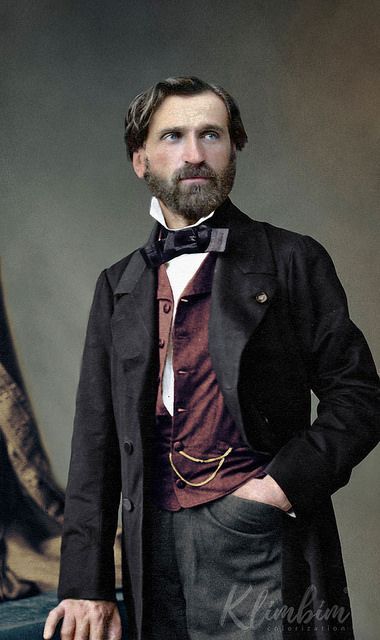
A man like Verdi must write like Verdi.
- Giuseppe Verdi
Verdi was the first to admit his music wasn't the most technically challenging in purely academic terms: "Of all composers, past and present, I am the least learned," he said. But did that stop him writing some of the most beloved, heart-wrenching tunes, with melodies that have inspired over the centuries. Indeed it’s hard to think of anyone apart from Wagner or Mozart who could occupy the pedestal that Verdi found himself upon as one of the best composers ever. I love listening to Verdi but none more so whenever I find myself traveling in Italy. And why not? Verdi’s music and his legacy is woven into the tapesetry of the country’s history of reunification.
Born on Oct. 9, 1813, the composer’s output far outpaced many opera creators before and after. But what is most fascinating is that his works endure to this day. While some of his greatest works have always held a spot in the operatic canon, spots that have never been threatened, lesser known operas from decades ago, such as “I Due Foscari,” “Giovanna d’Arco,” or “Atilla,” have suddenly found themselves unshakably fixed in the modern canon. Even composers of the past that are getting revivals of sorts can’t quite claim the same status.
So what makes Verdi’s opera so enduring and ever-fascinating? Throughout history, many of his works have often been criticized for their melodramatic plotting, much of which lacks narrative consistency. Exhibit A: “Il Trovatore.”
And yet, here we are. Verdi remains king of the opera world. Here are some reasons why.
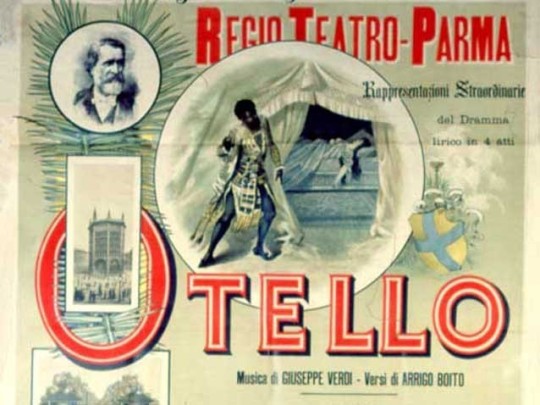
While there is no doubt that some of Verdi’s characters are among the greatest created for the opera stage (see Otello, Falstaff, Filippo, Nabucco, Simon Boccanegra, the Macbeths, Rigoletto, Gustavo, etc.) there is also no doubt that there are many stock characters layered throughout his works, particularly in the early ones. And yet, can one ever claim that Verdi overlooks a single one of them. They say that there are no small characters and Verdi certainly follows this idea.
Moreover, his villains are never truly one-sided. The great antagonists of such operas as “Atilla,” “Don Carlo,” and “I Vespri Siciliani,” are more than just men on vengeful rampages and the likes. Instead, Verdi always reveals more than one might imagine and actually makes us not only empathize with these characters but actually sympathize. Even the hateful Duke of Mantua is loveable to the audience because of how Verdi infuses him with an infectious melody.
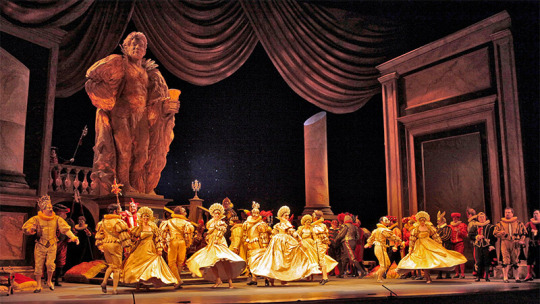
In keeping with the theme of strong characters all around, there is no doubt that much of the appeal for Verdi’s operas is his strong women. Obviously, he has his share of damsels in distress, but none of the Verdi operas feature passive women sitting around for men to save their lives. Due to the context of his plots, the women in his operas are often forced into situations where they don’t have complete control, and yet we see them constantly shifting the balance of power in their favor. Violetta is probably the greatest of Verdi’s heroines, but one cannot overlook such women as Luisa Miller, Odabella, Abigaile, Lady Macbeth, Aida, Amelia (in “Un Ballo in Maschera”), and Azucena and how wonderfully complex they are. It is no surprise that the greatest mezzos and sopranos in history have, at some point, taken on and championed Verdi’s operas.
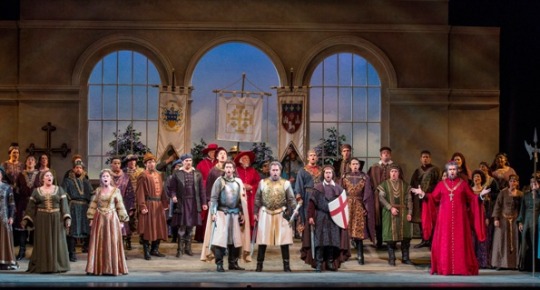
Verdi’s melodramas remain so poignant because they tend to be so relevant. Unlike many other composers of the time and since Verdi’s own life as a political figure is showcased tremendously throughout his operas. His ability to see how a figure struggles to balance his personal and public lives remains an issue for people of all professions. And the great tyrants and even benevolent leader of his works, are often shown with their failings. Just look at the guilt-ridden Macbeth or King Filippo, both lonely men who in their aims to maintain power have lost their connection to other people. Or Simon Boccanegra, a man thrust into a position of power he never wanted and forced to take on the consequence of that choice. We see people battle for liberation on one end and see oppressive regimes try and enforce their ways of life. We see an examination of the horrors of religious institutions and yet we ultimately see a reconsideration of man’s relationship to a higher deity. Man and his position within society is almost always at the core of Verdi’s works.
Parental themes are more prevalent in Verdi’s operas than they are in any other composer before or since. In many ways, these relationships are among the most poignant in all of the composer’s oeuvre. The reunion between Simon Boccanegra and his daughter Amelia is among the most beautiful moments ever scored. Ditto for Rigoletto and Gilda’s series of duets that develop their relationship throughout the opera. The ambiguity between Manrico and Azucena is a rich portrayal of love and hate in a mother-son dynamic. And there is also a truly tragic dimension to the relationship between Don Carlo and his father Filippo, who actually prefers his friend Posa to his own son. Everywhere you look, these relationships and the themes they highlight are revealing and ever-fascinating.
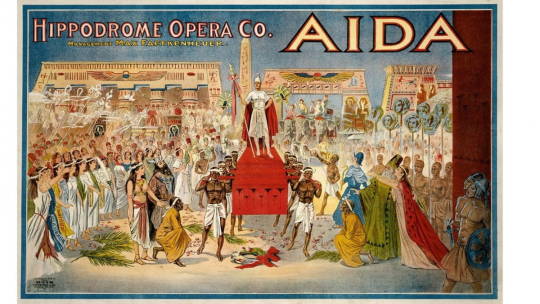
Of course, probably the single greatest reason why Verdi’s art endures to this day – his music. He composed some of the greatest music ever written. Any Verdi opera, even his lesser works, is one stream of endless melody after another. Even his recitatives are hummable. This makes for dynamic emotional experiences with the composer constantly finding new ways to keep the audience engaged. “Il Trovatore,” which I mentioned in the intro, endures because of the three above reasons, but mainly because it is arguably the greatest example of the composer’s melodic wealth and imagination.
His final opera, “Falstaff,” doesn’t have as many “memorable” melodies as some of his earlier works, and yet the opera has just as much or more abundance of melody than any of his other operas. It’s just that Verdi has developed tremendous skill at this point that he has fused his gift with witty dramatic ability. Falstaff never wastes a note, which holds true for many of his other greater works.
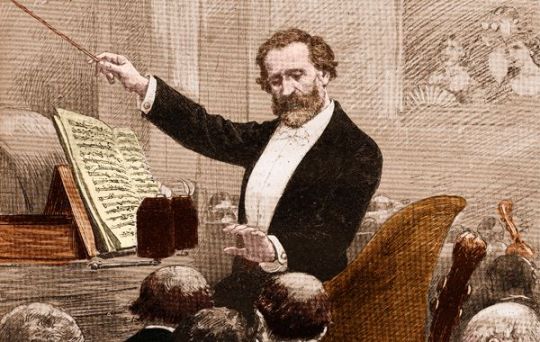
One thing that makes Verdi’s music so wonderful is how he constantly plays with the limits of structure. More than any other composer, a look at his career progression showcases a man constantly looking to better himself. And by the time we get to “Otello” and “Falstaff” and compare them to “Oberto” and “Un Giorno di Regno,” there is no doubt that he has achieved that emphatically. The latter two operas test and surpass the limits of what Italian Opera signified, taking time-honored clichés showcased in those first two works and transforming them into dramatic gestures. Is there a drinking song that so wonderfully depicts increased inebriation the way “Otello’s” does? Or is there a more hilarious use of the A-B-A aria structure than the 30-second “Cuando era paggio” from “Falstaff?”
Verdi’s opera endures because it remains a discovery for those working in the art form today. And it will continue to do so as long as the art form is alive and well.
66 notes
·
View notes
Text
Writing Characters With Believable Military PTSD
I typically write these writing and worldbuilding essays from a dispassionate perspective, offering advice and context to prospective writers from as neutral a point of view as I can manage, with the goal being to present specific pieces of information and broader concepts that can hopefully improve writing and build creators’ confidence to bring their projects to fruition, whether that be writing, tabletop gaming, video game programming, or anything that suits their fancy. While writing this essay though, I struggled to maintain that perspective. Certainly, the importance of the topic to me was a factor, but ultimately, I saw impersonality just as a suboptimal presentation method for something so intensely personal. I do maintain some impartiality particularly in places where historical or academic context is called for, but in other respects I’ve opted for a different approach. Ultimately, this essay is a labor of love for me, love for those who suffer from military PTSD, love for those who love those who suffer from it, and love for writers who want to, in the way that they so choose, help those two other groups out. Thus, this is a different type of essay in certain segments than my usual fare; I hope the essay isn’t an unreadable chimera because of it.
This essay focuses on military-related PTSD. While there are some concepts that translate well into PTSD in the civilian sphere, there are unique elements that do not necessarily fit the mold in both directions, so for someone hoping to write a different form of PTSD, I would recommend finding other resources that could better suit your purposes. I also recommend using more than one source just in general, trauma is personal and so multiple sources can help provide a wide range of experiences to draw upon, which should hopefully improve any creative work.
And as a final introductory note, traumatic experiences are deeply personal. If you are using someone you know as a model for your writing, you owe it to that person to communicate exactly what you are doing and to ask their permission every step of the way. I consider it a request out of politeness to implore any author who uses someone else’s experiences to inform their writing in any capacity, but when it comes to the truly negative experiences in someone’s life, this rises higher from request to demand. You will ask someone before taking a negative experience from their own life and placing it into your creative works, and you will not hide anything about it from them. Receiving it is a great sign of trust. The opposite is a travesty, robbing someone of a piece of themselves and placing it upon display as a grotesque exhibit. And if that sounds ghoulish and macabre, it’s because it is, without hyperbole. Don’t do it.
Why Write PTSD?
What is the purpose of including PTSD in a creative work? There have been plenty of art therapy actions taken by those who suffer PTSD to create something from their condition, which can be as profound for those who do not have it as it is therapeutic for those that do, but why would someone include it in their creative works, and why is some no-name guy on the internet writing an essay offering tips as to how to do it better?
Certainly, one key element is that it’s real, and it happens. If art is to reflect upon reality, PTSD suffered by soldiers is one element of that, so art can reflect it, but what specifically about PTSD, as opposed to any other facet of existence? Author preference certainly plays a factor, but why would someone try to include something that is difficult to understand and difficult to portray? While everyone comes to their own reason, I think that a significant number of people are curious about what exactly goes on in the minds of someone suffering through PTSD, and creative works allow them a way to explore it, much the way fiction can explore scenarios and emotions that are either unlikely or unsafe to explore in reality. If that’s the case, then the purpose of this essay is rather simple, to make the PTSD examination more grounded in reality and thus a better reflection of it. But experiences are unique even if discernable patterns emerge, so in that sense, no essay created by an amateur writer with no psychological experience could be an authoritative take on reality, the nature of which would is far beyond the scope of this essay.
For my own part, I think that well-done creative works involving PTSD is meant to break down the isolation that it can cause in its wake. Veterans suffering may feel that they are alone, that their loved ones cannot understand them and the burden of trying to create that would simply push them away; better instead to have the imperfect bonds that they currently have than risk losing them entirely. For those who are on the outside looking in, isolation lurks there as well, a gulf that seems impossible to breach and possibly intrusive to even try. Creative works that depict PTSD can help create a sense that victims aren’t alone, that there are people that understand and can help without demeaning the sense of self-worth. Of course, another element would be to reduce the amount of poorly-done depictions of PTSD. Some creative works use PTSD as a backstory element, relegating a defining and important element of an individual’s life as an aside, or a minor problem that can be resolved with a good hug and a cry or a few nights with the right person. If a well-done creative work can help create a bridge and break down isolation, a poorly-done one can turn victims off, reinforcing the idea that no one understands and worse, no one cares. For others, it gives a completely altered sense of what PTSD is and what they could do to help, keeping them out, confusing them, or other counter-productive actions. In that sense, all the essay is to help build up those who are doing the heavy lifting. I’m not full of so much hubris as to think this is a profound piece of writing that will help others, but if creators are willing to try and do the hard work of building a bridge, I could at least try to help out and provide a wheelbarrow.
An Abbreviated Look At The Many Faces and Names of PTSD Throughout History
PTSD has been observed repeatedly throughout human history, even when it was poorly understood. This means that explorations of PTSD can be written in settings even if they did not have a distinctly modern understanding of neurology, trauma, or related matters. These historical contexts are also useful for worldbuilding a believable response in fictional settings and scenarios that don’t necessarily have a strict analogue in our own history. By providing this historical context, hopefully I can craft a broad-based sense of believable responses to characters with PTSD at a larger level.
In the time of Rome, it was understood by legionnaires that combat was a difficult endeavor, and so troops were typically on the front lines engaged in combat for short periods of time, to be rotated back for rest while others took their place. It was considered ideal, in these situations, to rotate troops that fought together back so that they could rest together. The immediate lesson is obvious, the Romans believed that it was vital for troops to take time to process what they had done and that was best served with quiet periods of rest not just to allow the adrenaline to dissipate (the "combat high"), but a chance for the mind to wrap itself around what the legionnaire had done. The Romans also recognized that camaraderie between fellow soldiers helped soldiers to cope, and this would be a running theme throughout history (and remains as such today). Soldiers were able to empathize with each other, and help each other through times of difficulty. This was not all sanguine, however, Roman legions depended on their strong formations, and a soldier that did not perform their duty could endanger the unit, and so shame in not fulfilling their duty was another means to keep soldiers in line. The idea of not letting down your fellow soldiers is a persistent refrain in coping with the traumas of war, and throughout history this idea has been used for both pleasant and unpleasant means of keeping soldiers in the fight.
In the Middle Ages, Geoffroi de Charny wrote extensively on the difficulties that knights could experience on the campaign trail in his Book of Chivalry. The book highlights the deprivation that knights suffered, from the bad food and poor sleep to the traumatic experience of combat to being away from family and friends to the loss of valued comrades to combat and infection; each of these is understood as a significant stressor that puts great strain on the mental health of soldiers up to today. De Charny recommended focusing on the knightly oaths of service, the needs of the mission of their liege, and the duty of the knight to serve as methods to help bolster the resolve of struggling knights. The book also mentions seeking counseling and guidance from priests or other confidants to help improve their mental health to see their mission through. This wasn’t universal, however. Some severely traumatized individuals were seen as simple cowards, and punished harshly for their perceived cowardice as antithetical to good virtue and to serve as an example.
World War I saw a sharp rise in the reported incidents of military-related PTSD and new understandings and misunderstandings. The rise in the number of soldiers caused a rise in cases of military PTSD, even though the term itself was not known at the time. Especially in the early phases of the war, many soldiers suffering from PTSD were thought to be malingering, pretending to have symptoms to avoid being sent to the front lines. The term “shell shock” was derived because it was believed that the concussive force of artillery bombardment caused brain damage as it rattled the skull or carbon monoxide fumes would damage the brain as they were inhaled, as a means to explain why soldiers could have physical responses such as slurred speech, lack of response to external stimuli, even nigh-on waking catatonia, despite not being hit by rifle rounds or shrapnel. This would later be replaced by the term “battle fatigue” when it became apparent that artillery bombardment was not a predicative indicator. Particularly as manpower shortages became more prevalent, PTSD-sufferers could be sent to firing squads as a means to cow other troops to not abandon their post. Other less fatal methods of shaming could occur, such as the designation “Lack of Moral Fibre,” an official brand of cowardice, as an attempt to shame the members into remembering their duty. As the war developed, and understanding grew, better methods of treatment were made, with rest and comfort provided to slight cases, strict troop rotations observed to rotate men to and from the front lines, and patients not being told that they were being evacuated for nervous breakdown to avoid cementing that idea in their mind. These lessons would continue into World War II, where the term “combat stress reaction” was adopted. While not always strenuously followed, regular rotations were adopted as standard policy. This was still not universal, plenty of units still relied upon bullying members into maintaining their post despite mental trauma.
The American military promotes a culture of competence and ability, particularly for the enlisted ranks, and that lends itself to the soldier viewing themselves in a starkly different fashion than a civilian. Often, a soldier sees the inability to cope with a traumatic experience as a personal failure stemming from the lack of mental fortitude. Owning up to such a lack of capability is tantamount to accepting that they are an inferior soldier, less capable than their fellows. This idea is commonly discussed, and should not be ignored, but it is far from the only reason. The military also possesses a strong culture of fraternity that obligates “Don’t be a fuckup,” is a powerful motivating force, and it leads plenty of members of the military to ignore traumatic experiences out of the perceived need not to put the burden on their squadmates. While most professional militaries stress that seeking mental health for trauma is not considered a sign of weakness, enlisted know that if they receive mental health counseling, it is entirely likely that someone will have to take their place in the meantime. That could potentially mean that another person, particularly in front-line units, are exposed to danger that they would otherwise not be exposed to, potentially exacerbating guilt if said person gets hurt or killed. This is even true in stateside units, plenty of soldiers don’t report for treatment because it would mean dumping work on their fellows, a negative aspect of unit fraternity. Plenty of veterans also simply never are screened for mental health treatment, and usually this lends to a mentality of “well, no one is asking, so I should be fine.” These taken together combine to a heartbreaking reality, oftentimes a modern veteran that seeks help for mental trauma has often coped silently for years, perhaps self-medicating with alcohol or off-label drug usage, and is typically very far along their own path comparatively. Others simply fall through the cracks, not being screened for mental disorders and so do not believe that anything is wrong; after all, if something was wrong, surely the doctors would notice it, right? The current schedule of deployments, which are duration-based and not mission-based, also make it hard for servicemembers to rationalize their experiences and equate them to the mission; there’s no sense of pairing suffering to objectives the way that de Charnay mentioned could help contextualize the deprivation and loss. These sorts of experiences make the soldier feel adrift, and their suffering pointless, which is discouraging on another level. It is one thing to suffer for a cause, it’s another not to know why, amplifying the feelings of powerlessness and furthering the isolation that they feel.
Pen to Page - The Characters and Their Responses
The presentation of PTSD within a character will depend largely on the point-of-view that the author creates. A character that suffers from PTSD depending on the presence of an internal or external point-of-view, will be vastly different experiences on page. Knowing this is essential, as this will determine how the story itself is presenting the disorder. Neither is necessarily more preferable than the other, and is largely a matter of the type of story being told and the personal preference of the author.
Internal perspectives will follow the character’s response from triggering event to immediate response. This allows the author to present a glimpse into what the character is experiencing. In these circumstances, remember that traumatic flashbacks are merely one of many experiences that an average sufferer of PTSD can endure. In a visual medium, flashbacks are time-effective methods to portray a character reliving portions of a traumatic experience, but other forms of media can have other tools. Traumatic flashbacks are not necessarily a direct reliving of an event from start to finish, individuals may instead feel sudden sharp pains of old injuries, be overwhelmed by still images of traumatic scenes or loud traumatic sounds. These can be linked to triggers that bring up the traumatic incident, such as a similar sight, sound, or smell. These moments of linkage are not necessarily experienced linearly or provide a clear sequence of events from start to finish (memory rarely is unless specifically prompted), and it may be to the author’s advantage to not portray them as such in order to communicate the difficulty in mental parsing that the character may be experiencing. Others might be more intrusive, such as violently deranged nightmares that prevent sleep. The author must try to strike a balance between portraying the experience realistically and portraying it logically that audience members can understand. The important thing about these memories is that they are intrusive, unwelcome, and quite stressful, so using techniques that jar the reader, such as the sudden intrusive image of a torn body, a burning vehicle, or another piece of the traumatic incident helps communicate the disorientation. Don't rely simply on shock therapy, it's not enough just to put viscera on the page. Once it is there, the next steps, how the character reacts, is crucial to a believable response.
When the character experiences something that triggers their PTSD, start to describe the stress response, begin rapidly shortening the sentences to simulate the synaptic activity, express the fight-flight-freeze response as the character reacts, using the tools of dramatic action to heighten tension and portraying the experience as something frightful and distinctly undesirable. The triggering incident brings back the fear, such as a pile of rubble on the side of the road being a potential IED location, or a loud firework recalling the initial moments of an enemy ambush. The trauma intrudes, and the character falls deep into the stress response, and now they react. How does this character react? By taking cover? By attacking the aggressor who so reminds them of the face of their enemy? Once the initial event starts, then the character continues to respond. Do they try to get to safety? Secure the area and eliminate the enemy? Eventually, the character likely recognizes their response is inappropriate. It wasn’t a gunshot, it was a car backfiring, the smell of copper isn’t the sight of a blown-apart comrade and the rank odor of blood, it’s just a jug of musty pennies. This fear will lead to control mechanisms where the victim realizes that their response is irrational. Frequently, the fear is still there, and it still struggles with control. This could heighten a feeling a powerlessness in the character as they try and fail to put the fear under control: "Yes, I know this isn’t real and there’s nothing to be afraid of, but I’m still shaking and I am still afraid!" It’s a horrifying logical track, a fear that the victim isn’t even in control of their thoughts - the one place that they should have control - and that they might always be this way. There’s no safety since even their thoughts aren’t safe. Despair might also follow, as the victim frantically asserts to regain control. Usually with time, the fear starts to lessen as the logical centers of the brain regain control, and the fear diminishes. Some times, the victim can't even really recall the exact crippling sense of fear when attempting to recall it, only that they were afraid and that it was deeply scary and awful, but the notion that it happened remains in their mind.
Control mechanisms are also important to developing a believable PTSD victim. Most sufferers dread the PTSD response and so actively avoid objects or situations that could potentially trigger. Someone who may have had to escape from a helicopter falling into the ocean may not like to be immersed in water. Someone who was hit by a hidden IED may swerve to avoid suspicious piles in the road. Someone buried under a collapsing ceiling may become claustrophobic. Thus, many characters with PTSD will be hypervigilant almost to the point of exhaustion, avoiding setting off the undesired response. This hypervigilance is mentally taxing; the character begins to become sluggish mentally as all their energy is squeezed out, leaving them struggling for even the simplest of rational thoughts. This mental fog can be translated onto the page in dramatic effect by adding paragraph length to even simple actions, bringing the reader along into the fog, laboriously seeing the character move to perform simple actions. Then, mix in a loss of a sense of purpose. They’re adrift, not exactly sure what they’re doing and barely aware of what’s happening, although they are thinking and functioning. In the character’s daily life, they are living their life using maximum effort to avoid triggering responses; this is another aspect of control that the character can use as an attempt to claw back some semblance of power in their own lives. Even control methods that aren’t necessarily healthy such as drinking themselves to pass out every night or abusing sleeping pills in an attempt to sleep due to their nightmares, are ways to attempt to regain a sense of normalcy and function. Don’t condescend to these characters and make them pathetic, that’s just another layer of cruelty, but showing the unhealthy coping mechanisms can demonstrate the difficulty that PTSD victims are feeling. Combined with an external perspective, the author can show the damage that these unhealthy actions are doing without casting the character as weak for not taking a different path.
External perspectives focus on the other characters and how they observe and react to the individual in question. Since the internal thought process of the character is not known, sudden reactions to an unknown trigger can be quite jarring for characters unaware, which can mirror real-life experiences that individuals can have with PTSD-sufferers. In these types of stories, the character’s reaction to the victim is paramount. PTSD in real life often evokes feelings of helplessness in loved ones when they simply cannot act to help, can evoke confusion, or anger and resentment. These reactions are powerful emotions with the ability to drive character work, and so external perspectives can be useful for telling a story about what it is like for loved ones who suffer in their own fashion. External perspectives can be used not just in describing triggering episodes, but in exploring how the character established coping mechanisms and how their loved ones react to them. Some mechanisms are distinctly unhealthy, such as alcohol or prescription drug abuse, complete withdrawal, or a refusal to drive vehicles, and these create stress and a feeling of helplessness in characters or can impel them to try and take action. Others can be healthy, and a moment of inspiration and joy for an external perspective could be sharing in that mechanism, demonstrating empathy and understanding which evokes strong pathos, and hopefully to friends of those who suffer from PTSD, a feeling that they too, are not alone.
As the character progresses, successes and failures can often be one of the most realistic and most important things to include within the work, since those consumers who have PTSD will see parts of themselves in the characters, which can build empathy and cut down on the feelings of isolation that many victims of PTSD feel. A character could, over the course of the story, begin weaning themselves off of their control mechanisms, have the feelings of panic subside as their logical sides more quickly assert control, replace unhealthy coping mechanisms with healthier ones, or other elements of character progression and growth. Contrarily, a character making progress could, after experiencing significant but unrelated stressors, backslide either into unhealthy coping mechanisms or be blindsided by another attack. This is a powerful fear for the victim, since it can cause them to think ‘all my progress, all my effort, and I am not free!’ This is often a great fear for PTSD users (people with depression often have the same feeling) that find methods of coping are no longer as effective, and the struggle is perceived as one that they’re ultimately doomed to failure. This feeling of inevitable failure can lead to self-harm and suicide as their avenue of success seems to burn to ash right as it was in their hands. More than one soldier suffering from PTSD has ended up concluding: “Fuck it, I can’t live like this,” as horrible as that is. Don’t be afraid to include setbacks and backsliding, those happen in reality, and can be one of the most isolating fears in their lives; if the goal of portraying PTSD accurately is to help remove that feeling of isolation, then content creators must not avoid these experiences. Success as well as failure are essential to PTSD in characters in stories, these elements moreso than any other, I believe, will transcend the medium and form a connection, fulfilling the objective we set out to include in the beginning paragraphs.
Coming Back to the Beginning
It might be counterintuitive at first glance to say “including military PTSD will probably mean it will be a long journey full of discouraging story beats that might make readers depressed,” because that’s definitely going to discourage some readers to do that. I don’t see it that way, though. The people that want to do it should go in knowing it’s going to be hard, and let that strengthen their resolve, and put the best creation they can forward. The opposite is also true. Not every prospective author has to want to include any number of difficult subjects in their works, and that’s perfectly fine. Content creators must be free to shape the craft that they so desire without the need to be obligated to tackle every difficult issue, and so no content creator should be thought of as lesser or inferior because they opt not to include it in their works. I think that’s honestly stronger than handling an important topic poorly, or even worse, frivolously. Neither should anyone think that a content creator not including PTSD in their works means that they don’t care about those who suffer from it or for those who care about them or who simply don’t care about the subject in general. That’s just a terrible way to treat someone, and in the end, this entire excursion was about the opposite
Ultimately, this essay is a chance not only to help improve creative works involving PTSD, but to reflect on the creative process. Those who still want to proceed, by all means, do so. Hopefully this essay will help you create something that can reach someone. If every piece of work that helps portray PTSD can reach someone somewhere and make things easier, even if ever so little, well then, that’s what it’s really all about.
Hoping everyone has a peaceful Memorial Day. Be good to each to other.
SLAL
158 notes
·
View notes
Link

When you think of grunge, do you picture a bunch of long-haired White guys in plaid shirts, singing about teenage angst and self-loathing? Time to expand that viewpoint. Standing above them all should be Tina Bell, a tiny Black woman with an outsized stage presence, and her band, Bam Bam. It’s only recently that the 1980s phenom has begun to be recognized as a godmother of grunge.
This modern genre’s sound was, in many ways, molded by a Black woman. The reason she is mostly unknown has everything to do with racism and misogyny. Looking back at the beginnings of grunge, with the preconception that “everybody involved” was White and/or male, means ignoring the Black woman who was standing at the front of the line.
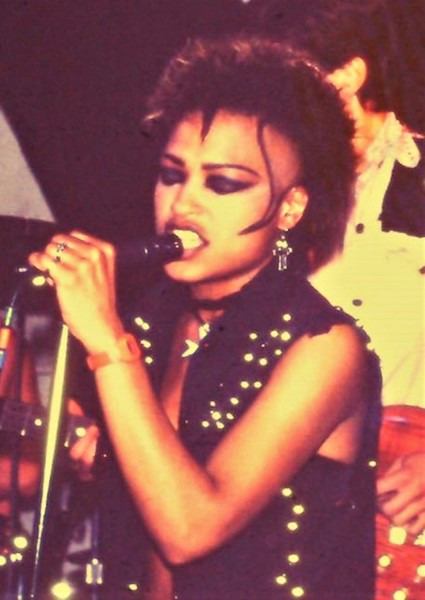
Bam Bam was formed as a punk band in 1983 in Seattle. Bell, a petite brown-skinned spitfire with more hairstyle changes than David Bowie, sang lead vocals and wrote most of the lyrics. Her then-husband Tommy Martin was on guitars (the band’s name is an acronym of their last names: Bell And Martin), Scotty “Buttocks” Ledgerwood played bass, and Matt Cameron was on drums. Cameron would leave the band in its first year and go on to fame as the drummer for Soundgarden and Pearl Jam. But he paid homage to his beginnings by wearing a Tina Bell T-shirt in a photoshoot for Pearl Jam’s 2017 Anthology: the Complete Scores book.
“For some reason a couple of skinheads are up front, calling her [the N-word] And all of the sudden, Bell grabs a microphone stand and she starts swirling it around her head like a lasso… She swung that fuckin’ thing around her head and about the fourth time, she smashed that son of a bitch.”
Bam Bam’s sound straddled the line between punk and something so new that it didn’t have a name yet. Their music combined a driving, thrumming bass line; downtuned, sludgy guitars; thrashy, pulsing drums; melodic vocals that range from sultry to haunting to screamy; and lyrics about the existential tension of trying to exist in a world not designed for you. The band’s 1984 music video for their single “Ground Zero” is low-budget, but Bell’s charisma seeps through.
“She was fucking badass. That’s all there is to it. She was amazing as a performer. I’ve only seen one White male lead singer command the stage in a similar way that Tina Bell did, and that was Bon Scott of AC/DC,” says Om Johari, who attended Bam Bam shows as a Black teenager in the ’80s and who would go on to lead all-female AC/DC cover band Hell’s Belles.
youtube
Christina King, a Seattle scenester who was close friends with Bell from 1984 until the early ’90s, says the singer’s talent was obvious. But she believes a lot of people dismissed Bell as a gimmick.
Among those attending their shows: Future members of grunge bands like Nirvana (Kurt Cobain did a stint as a Bam Bam roadie), Soundgarden, Alice in Chains, and Pearl Jam.
“I remember one person saying to me that they didn’t get ‘the whole Black girl singer thing,’ it just didn’t fit whatever they were into,” says King. “They were too ahead of their time.”
Bam Bam came into being in an era when hundreds of underground clubs, taverns, bars, and social halls — anywhere that you could cram in a band — were within the Seattle city limits. Bam Bam played almost all of them, and often to big crowds: The Colourbox, Crocodile Lounge, Gorilla Gardens, Squid Row — just to name a few.
Among those attending their shows: Future members of history-making grunge bands like Nirvana (Kurt Cobain did a stint as a Bam Bam roadie), Soundgarden, Alice in Chains, and Pearl Jam. Not to mention all the other people, mostly White and male, who would become prime targets for music labels trying to market this new sound.
Bell “already possessed everything they were trying to attain. She had a truer rock and roll spirit than almost any of those guys in that town. Everything they tried to do, she naturally was,” says Ledgerwood, still a loyal bandmate.
One Seattle club, The Metropolis, became “like our fucking living room,” says Ledgerwood. It was also the site of an overtly racist verbal assault against Tina Bell.
“For some reason a couple of skinheads are up front, calling her [the N-word],” Ledgerwood recalls. “And all of the sudden, Bell grabs a microphone stand and she starts swirling it around her head like a lasso… She swung that fuckin’ thing around her head and about the fourth time, she smashed that son of a bitch… She nailed that fucker right in the temple of his head. Split like a melon. And the other guy next to him caught it too, they go down, and we’re like, ‘What the fuck?’”
Ledgerwood says that after going backstage for a while to regroup, Bell came back “and put out the most blistering set of our fucking career.”
This could easily be an anecdote about Bell’s power, her resilience, and willingness to fight back against oppressive forces. But it’s also a story about the cost of being a Black woman who does something that some people don’t expect or approve of.
“She’s being pulled out of her zone because somebody is acknowledging how the rest of the world can see her,” says Johari, empathizing with the star rocker. “And even to react to it by picking up a microphone and smashing someone in the face, that means that that incident cost her not only that moment it takes to get back into the song, but the whole [effects of her] action will last for weeks.
“She’ll replay that over and over and over and over again. And then the people she sees that were there when it happened, they’re gonna come up to her and they’re gonna forget everything that she’s saying, all the stuff that she had did, and they’re only going to focus on, ‘I was at that show where you knocked a dude in the head for calling you an N-word,’” Johari says. “It has nothing to do with her artistry. But it reminds her of the way in which she has to be prepared, just in case it happens again.”
King remembers Bell also felt that some of the other men in the band’s changing lineup failed to treat her as an equal partner: “She’s getting that from her own band members — what do you think audience people are like?”
A European tour in the late ’80s gained Bam Bam international fans, but ended after Bell and Martin split up, and Bell was caught in an immigration enforcement dragnet in the Netherlands.
When they returned to the Pacific Northwest, Bam Bam continued playing shows until 1990, when Bell abruptly quit as they were packing up to head to the studio in Portland, Ore.
“She had just had enough,” Ledgerwood says. “For almost eight years she had almost literally eviscerated herself for the audience.”
But that work never resulted in the national recognition they deserved.
“Grunge, whatever that means, is being identified as from your community, your colleagues, your sound that you were a participant in help shaping, and you’re not even mentioned in any of it.”
“Sometimes you need to be a little bit of an asshole to protect yourself. And Bell wasn’t much of an asshole,” Ledgerwood adds. “She was a pure-hearted person and had a really hard time believing that people couldn’t accept her over something as stupid as race.”
Bell didn’t just quit the band, she withdrew from music completely, says her son, Oscar-winning documentary filmmaker TJ Martin. Not out of resentment, he adds, but perhaps to escape the painful reminders that the music she helped pioneer was now earning other bands multimillion-dollar record contracts.
“Grunge, whatever that means, is being identified as from your community, your colleagues, your sound that you were a participant in help shaping, and you’re not even mentioned in any of it,” Martin says. “I can’t even fathom what that would feel like for it to be sort of spit back in your face with such frequency.”
Ledgerwood believes Bell died of a broken heart. But when Bell died alone in her Las Vegas apartment in 2012, the official cause of death listed was cirrhosis of the liver. She had struggled with alcohol and depression. Her son says the coroner estimated her time of death as a couple weeks before her body was discovered. She was 55 years old.
The things that could have told Tina Bell’s story in her own voice are lost. Martin arrived in Las Vegas to find that the contents of his mother’s apartment — except for a DVD player, a poster, and a chair — had been thrown away. All of her writings — lyrics, poems, diaries — along with Bam Bam music, videos, and other memorabilia — went in the trash without her family even being notified.
If you think you were in Seattle in the ’80s, in the grunge scene, and you don’t remember Tina Bell and Bam Bam, you probably weren’t really fucking there.
“I couldn’t help draw a parallel between her not being respected and seen in the first chapter of her life, as the front person of a punk band, and then even in death being disrespected and not being seen for the merits of the life she lived,” says Martin.
Bell’s death is also an indictment of the way she was written out of her own story. The way grunge’s almighty gatekeepers chose to look through her instead of at her. Grunge became the domain of alienated young White men in flannel shirts, and Tina Bell didn’t fit the narrative they were trying to sell.
“Black herstory can suffer immense amounts of erasure if somebody is not brave enough to ensure that women get counted,” Johari says.
To many of those who were part of the scene at the time, the amnesia seems intentional. Ledgerwood brings up the seminal history of Seattle’s grunge era, Everybody Loves Our Town. In it, the author refers to Bam Bam as a three-piece instrumental band mainly notable because Matt Cameron was the drummer. Tina Bell isn’t even mentioned.
“How in the hell would he have a recollection of how great Bam Bam and its drummer was, and not this unbelievably beautiful woman, this firecracker, this explosive rock and roll goddess?” Ledgerwood asks. “Even if he thought she sucked, to not remember the only Black woman on the whole fuckin’ scene is — well, it’s like that old joke about the ’60s: If you think you were in Seattle in the ’80s, in the grunge scene, and you don’t remember Tina Bell and Bam Bam, you probably weren’t really fucking there.”
You can listen to more of Bam Bam’s music on this Spotify playlist. A vinyl album with the band’s songs is coming out this year on Bric-a-Brac Records.
#Alice in Chains#Bam Bam#black history#black women#black women in rock#grunge#Kurt Cobain#music#Nirvana#Pearl Jam#rock#Seattle#Soundgarden#Tina Bell#women in rock#women's history#80s
300 notes
·
View notes
Text
Luciferian Challenge: Day 9
How do you feel about God?
This might be an unexpected take from a Lutheran-raised Luciferian, but I don’t really have strong opinions about God. I have strong opinions about harmful actions taken in God’s name, the misrepresentation of history, and an abuse of social and political power enacted by any religious group, but not really on God Himself.
I’m a big fan of some of His people, both living and dead. I have many Christian friends who are just the nicest people, and magically speaking, I work with one Christian saint so far in the form of St Expedite, and I’ve sometimes considered trying to add St Cyprian to the mix. I am comfortable approaching Saints and other Christian entities in the way that’s appropriate to them, and this hasn’t negatively impacted me in any way so far, though I don’t know if that’ll change after I undergo a more spiritually impactful apostasy.
This feels brief and anticlimactic, so I’m grabbing another prompt from the bonus list! Another thematically appropriate one, this time in the form of…
How do you feel about the religious texts of the Abrahamic faiths? Do you use it as part of your path?
This answer is going to be longer and thus under the cut, but if people read anything I write during this entire challenge, I genuinely hope it’s this one. I will say now for any Christian, Jewish, or Muslim readers or followers I have, it will not be an answer that is hostile towards you, as I don’t want anyone to worry that they might have to either skip this answer completely or else brace themselves against an incredibly shitty take.
To get the “do you use it” part of the question out of the way, I own the Charmer’s Psalter and have used Biblical verse in magic before, but I don’t know how long that’ll continue as my magic develops and changes. I might end up just using the parts that reference the spirits and deities I work with when writing rituals, the ever popular Lord’s Prayer In Reverse, etc.
Now, onto the important stuff.
By Abrahamic faiths I assume they mean Christinity, Judaism, and Islam, since those are the three people tend to lump together during these sorts of discussions. To get two of those out of the way, I don’t think I should really feel any particular way about the religious texts used in Judaism and Islam, as I’m not Jewish nor Muslim.
I know it’s a sadly common thing for Luciferians or Satanists (or many neo-pagans and wiccans, for that matter) to be “anti-Abrahamic” and claim that while they don’t have an issue with the people that belong to those religious, they don’t like the religions themselves or the dogmatic rules those religions might encourage. But that’s sort of… missing the point, isn’t it?
The idea that anyone is a victim of their own religious belief is only half formed if you don’t look at the people or groups that will use the twisting of religious texts, ideas, or communities to victimize others. Lawmakers will often use Christian ideas to try and control women’s bodies, for example, which is something groups like TST vocally push back against. But the expectations they are willing to make on those laws reveal the hypocrisy of their stance, and that belief is being used as a smokescreen to obscure the true intentions of control over women’s bodies for the sake of it. Someone cherry picking or outright misrepresenting the words and ideals of their holy texts or religion to suit their selfish or political needs is not the fact of that holy text or religion.
We claim to reject dogma, but the assumption and blanket statement that these three religions are inherently harmful and oppressive is (in my opinion) dogmatic, and often we Luciferians or Satanists or even Pagans sometimes fall into the trap of regurgitating right wing talking points when it comes to how Judaism or Islam in particular are perceived. The issue is the people who would encourage dogmatic thinking or worse, lawmaking, while using faith as an excuse and to add legitimacy to their bigotry. To demonize the religion is to abandon great swaths of its victims, such as the women and LGBT people of that faith who are being abused by bad actors in the name of a religion they share.
If the idea of why someone would remain a member of their religion when there are so many bad actors, religious texts, or even just passages they might disagree with is a hard thing to wrap one’s head around, I ask this: would you expect rejection of their faith by a Norse pagan for the historic sexism and homophobia of old Norse societies? For the modern associations it has with neo-nazis and bigotry towards women and queer people?
If you say yes, if you would stubbornly and genuinely say yes… then what does it say about you, when we share a label with Anton LaVey’s books that were so influenced by Social Darwinism and Might Makes Right? With groups like the Order of Nine Angels, the Joy of Satan, and others who would claim to be Luciferians or Satanists while advocating for hate speech, bigotry, or literal actual murder? If a few bad actors or communities or specific books can ruin religions as old and as complex and as culturally varied as Christianity, Judaism, and Islam, how the hell are there any Satanists and Luciferians left that aren’t transparently proud bigots?
If we can accept for ourselves that not all Satanists and Luciferians will use the religious label with good intentions, and that not all Pagans hold ideals that are befitting the gods they claim to serve or the communities they want to be a part of, why can so few of us extend that basic courtesy to other religions?
And all this is to say nothing of how separated from its original historic and linguistic context the bible has become, and how our view of sin is very different to how those that penned Leviticus likely saw it.
While I can understand and empathize with those who have a negative view of a religion that’s done them personal harm and caused lasting trauma, that’s the shape that their abuse took. It was the fault of the people that enacted that abuse and any churches or organizations that stood by it, not the religion they used as an excuse.* I will genuinely never blame any who shy away from a religious upbringing or culture that tried to condemn their sexuality, or gender identity, or one which tried to control their bodies. That kind of negative association lingers, and there’s no doubt that people have done terrible things in the name of their faith, like I’ve said. But to treat those religions like the root of all societal ills when there are so many who would or are be cruel regardless of their beliefs, or to be hostile towards those that follow such religions without trying to impose any restrictions or beliefs on others, is missing the broader issue and (in my opinion) far more likely to do harm than good.
Also like. Dual faith practices exist and are also fair and valid and doubtless rewarding for those people.
*Please note that I am not including small, cult-like sects in my statements about these religions as a whole. There are plenty of Christian communities who are outright hate groups or otherwise dangerous to their members. Hopefully no one tries to point to some pack of weirdos as their justification to me on why all Christians are either bad or misled, or worse, tries to apply that to other religions as well because they have some historic point of connection.
#luciferianism#theistic luciferianism#witchblr#30 Day Luciferian Challenge#30dayluciferianchallenge#illumine
6 notes
·
View notes
Text
@sheprd
its hard to have a well rounded convo about this just cus of the reply character limit but no worries, no aggression taken and hopefully its clear from me as well. i dont feel strongly about this because i dont intend to alter any potential dog outside of the standard like that but;
basically, yes i do feel the same so long as its not hurting the dog (i dont know if the collie folds are detrimental or not, if they arent then same to that) personally i greatly value agency over all aspects of life and that includes my pets. for things that are exclusively aesthetic in nature i do think its a little ridiculous to get judgmental and upset at buyers for that
if it were something like a breeder wanted a dog to be shown and was open about that, but the owner made an alteration like that to the animal, then the issue isnt so much the alteration as it is the conflict of interest and breech of trust. im not trying to advocate for peoples right to go behind their breeders backs or anything. im specifically wishing breeders didnt mind it at all
i already do think that there are many things about breed standards i dont agree with, in particular over-emphasis on arbitrary aesthetics. i think its odd to believe that dogs can and should have their ears altered one way, but not the other, when neither shape serves any purpose to begin with (and there is already lots of variety to crop styles)
so yeah i still do just wish this wasnt something people would judge over, but we dont have to agree on that either! im not trying to advocate people breeding super out of standard, or even for animals with these alterations to be allowed in shows. just for owners to be able to do what they want with their animals. its the same as a breeder being upset at someone dying their dogs fur in my eyes
As you said we don’t have to agree on this point, but I do disagree with some of what you’ve said.
Dying a dog’s fur is a ridiculous thing to be upset about because that is temporary. Same with cutting the hair- for the most part, unless it damages the coat beyond repair. Hair grows back. Deliberately changing a dog’s ears (or any other form of their presentation) is permanent. That means there is no way to fix it if shit hits the fan.
I do think it is a breeder’s right (responsibility even) to care about how their dogs turn out, and someone who deliberately changes what that dog is supposed to look like because they thought it looked nice without telling the breeder would definitely be considered a breach of trust in my book (if I bred, which I don’t, so grain of salt time). There are plenty of dogs out there that look that completely out of standard and the response really is that if you wanted that look why not go with that dog (general you) instead of buying a dog that was going to look a certain way before you changed it.
Additionally while you may not put a lot of value into cropping styles, there is less variance in correct crops for a doberman than you might think. This is why doberman breeders who are decent crop their puppies prior to going home- to prevent people from getting a shitty crop from a vet that doesn’t know the correct style. They teach new owners how to train the ears to stand and provide help in person whenever possible. You may see dobes with a lot of variance but that is not what is intended. And we have found that dobes without perfectly standing cropped ears have a seriously reduced chance of being adopted if their first home doesn’t work out, whether in rescue or from a breeder. I’ve spoken on this blog before about how if the ears aren’t nice cropped or natural, then the dog is that much less likely to generate interest. A friend of mine ended up with a dog that was missing half his natural ear due to an injury specifically because no one wanted him due to the cosmetic defect. So yes, arbitrarily deciding that (general) you like the natural-but-standing look is great until you have to rehome your dog for whatever reason and suddenly no one is interested and your dog languishes in a rescue environment for years because of (general) your choice to permanently change (general) your dog’s ears.
Cropping also used to have a purpose, back when it was more commonplace and the style was drastically different, and while today’s modern crops are much longer and no longer functional you cannot say there is absolutely no reason for them to be done. Just because I specifically would not crop my dog if I had a choice in the matter doesn’t mean I don’t recognize the history and function behind the procedure, even if I think it’s silly to continue to rationalize today’s looooooooooooooong crops with the same thinking.
I understand what you’re saying as well- many people are not comfortable with a breeder of a dog having a say in what they can or cannot do with their dogs, and for the most part I totally empathize. This is one thing, however, that I would not blame a breeder for being upset over. Even if Sushi and Fae were not show dogs, their breeders would not be happy with me if I just decided to post Sushi’s ears or glue Fae’s down just because I thought they’d look cuter that way. Their immediate responses would likely be why not get a panda shepherd or a chi mix from a shelter if I wanted that type of look, I’m sure. Keep in mind that Fae I own outright so technically whatever I do with her IS my decision and legally speaking there’s really nothing her breeders can do about whatever I decide except if I don’t want her anymore I have to give her back to them. But we formed that relationship and trust in order for them to trust me with her, and doing something that drastic would be going back on that trust.
Something I find a bit... missing... on tumblr and no this is not just @ you here I promise, is that people really do not understand what it’s like to have that type of connection with the person who produced your dog. They trusted you with a dog they did not have to sell to you, a dog they loved before it was born, a dog they have high hopes for... and I think a lot of people on here are a little too caught up in wanting the freedom to do whatever they want whenever they want however they want without realizing that there is someone who loved that dog before you were in the equation that would like some form of say over big decisions like that.
10 notes
·
View notes
Text
BOOK REVIEW: SING, UNBURIED, SING

Sing, Unburied, Sing by Jesmyn Ward Fiction - Coming-of-Age Number of Pages: 264 Rating: 5 - Amazing - one of the best books I’ve read Reviewed by: CS Spotify Playlist, curated by reviewer, inspired by this book
A unique coming-of-age novel embedded with elements of magical realism, Jesmyn Ward’s Sing, Unburied, Sing is an unmissable read. At only 264 pages, the novel tells the story of a struggling family in modern-day Mississippi facing racial discrimination and coping with their family’s intergenerational trauma. Set in Mississippi, Ward sheds light on the lasting effects of Hurricane Katrina in the region, while framing her story around Parchman prison, a real-life penitentiary in Mississippi which once used the convict-lease system to imprison black men for minor offenses. Readers follow Jojo, a young boy with neglectful parents forced to raise his sister Kayla, who encounters the ghost of his grandfather’s former prison inmate, Richie. Jojo and his family are forced to address their haunting family history while also encountering racism in their daily lives. The book tackles mature and relevant issues such as racism, drug addiction, and the dark history of the prison system in the United States.
After reading the novel, I would say that Sing, Unburied, Sing is a must-read for any reader looking to learn more about the history of racism in the country as well as the racial discrimination many still face today. Jesmyn Ward offers a fresh and insightful perspective as a black woman from Mississippi addressing the issues plaguing her community to this day. I found Ward’s choice to introduce magical and spiritual elements to a story rooted in real-life issues to be incredibly smart and effective. What also stood out to me is Jesmyn Ward’s ability to create complex characters who readers can both criticize for their flaws and sympathize with for their struggles. One character who encompasses this complexity is Jojo’s mother, Leonie. Leonie is an absent mother to Jojo and Kayla, largely due to her extreme drug addiction. While the way she treats her kids is horrific, her backstory shows that her drug addiction is an escape from the trauma she has from her brother being murdered. Leonie is also in an abusive relationship with her children’s white father, Michael, whose family disapproves of her because she is black. While Leonie is not necessarily redeemed by these facts, readers are able to garner sympathy for her and empathize with her.
Sing, Unburied, Sing is almost all around a great novel- however, Ward’s descriptions can be hard to follow and understand because of the complexity of her language. While this makes the book a more difficult read, it also goes to show Ward’s gift as a writer. Before reading this book, I was seldom aware of the fact that black people in the United States are not only burdened with the racism they personally face, but also with the traumatic experiences faced by their ancestors. Overall, Sing, Unburied, Sing emphasizes the importance of reading novels focused on the black community and their setbacks from a black author’s perspective.
I would greatly recommend this book to any readers on a high-school level or above, because the language and content could be a bit overwhelming for younger readers. I would rate this book 5 stars, as it has stuck with me ever since I read it.
More about the playlist:
F.U.B.U. - Solange feat. The-Dream and BJ The Chicago Kid I chose this song for the playlist because Solange described the song as being made to empower the black community, especially black youth. She also considered her own experiences as a black woman when writing it, and included lyrics describing how black people are often randomly stopped because they are deemed “suspicious” or “violent”. This relates to a moment in the novel where Jojo’s family has a run-in with the police. Freedom - Beyoncé feat. Kendrick Lamar This song relates to themes in Sing, Unburied, Sing because Beyoncé describes issues affecting black women and addresses how she has grown from the personal pain she has experienced. She empowers black women, especially at the forefront of the Black Lives Matter movement, and in the music video for the song there are black mothers who have had their sons killed by the police. This moment in the video reminds me of Jojo’s grandmother, Mam, who lived through her son being murdered and being given no justice. Glory - Common and John Legend I chose this song for the playlist because of a particular lyric, which states “we sing, our music is the cuts that we bleed through”. This reminds me of the book because at the end, many black men and women who have passed away are described as singing, and this is because they need to tell their stories to those still alive so that they are remembered and their pain is never forgotten. Black or White - Michael Jackson I chose this song because it is largely about racial equality, and particularly spreads the message that interracial couples are an example of the harmony and unity that can exist between people of different races. This relates to the novel because Leonie is a black woman in a relationship with a white man, and this creates problems in their relationship especially when their families are not accepting of them. Buffalo Soldier - Bob Marley & The Wailers In this song, Bob Marley tells the story of black people taken from Africa and made into slaves. He details how slaves were treated horribly by white people and had to fight for their survival, and how even after slavery was abolished, black people are still fighting for rights. In Sing, Unburied, Sing, readers learn from Jojo’s grandfather that his ancestors were taken from a village in Africa and forced into slavery in the United States, and it is easy to see that some of the terrible treatment his ancestors received, he has received as well. The Power of Equality - Red Hot Chili Peppers This song reminds me of Sing, Unburied, Sing not only because of its argument for equality, but also because it describes how living in the south is difficult for minority groups. Jojo’s family experiences many racist incidents as a black family living in the south, and this song encompasses that experience. Cellophane - FKA twigs This song greatly alludes to the relationship between Leonie and Michael. FKA twigs is a black woman and this song describes her experience dating another famous white man. She describes how the media and his fans were very scrutinous of her every action, and how she faced racism which ultimately destroyed their relationship. This relates to Leonie and Michael because Michael’s family was extremely critical of Leonie mainly because she was black. The racism Leonie felt from the people in Michael’s life put an incredible strain on their relationship. Comfortably Numb - Pink Floyd Comfortably Numb describes the experience of one of the band members who was given tranquilizers which got rid of the pain he was feeling and made him feel “numb”. This relates to how Leonie uses drugs to escape the pain of her reality, from the trauma of her brother’s death to her abusive relationship with Michael. Everything is temporarily numb when she is high, but it still creates more issues in her life when she is off drugs. Shadow Man - Noname feat. Phoelix, Smino, & Sabo This song’s major theme is death, which is also a major topic dealt with in Sing, Unburied, Sing. The artists of the song are all young and black and are already thinking of their funerals, because so many black people die too young, such as the Parchman inmate, Richie, and Leonie’s brother, Given. The nightingale in the song is meant to represent the lost souls who died because of violence and systemic oppression, like many of the black people in the book who have died. Sing About Me, I’m Dying of Thirst - Kendrick Lamar In this song, one of the messages Lamar gets across is how he hopes when he dies, he will be remembered for the music he made and that people will sing about him for generations. In Sing, Unburied, Sing, the dead people must tell their stories so they can be passed on and only then can they be at peace. Lamar also may have been writing the song about his friend who had died before the album came out, and he tells his story through the song, just as the characters in Sing, Unburied, Sing must do.
#sing unburied sing#jesmyn ward#book review#fiction#coming of age#history#racism#glen rock library#glen rock teens#glen rock nj
2 notes
·
View notes
Text
BLOGTOBER 10/8/2020: PELICAN BLOOD (2019)
If you are reading this and the present date is between October 8 and 11 of 2020, please consider buying a virtual ticket to see Katrin Gebbe’s PELICAN BLOOD, available on demand through the Nightstream festival:
https://watch.eventive.org/nightstream/play/5f6e7e78d6a9bf0036613fa3
I am about to discuss this movie and its conclusion in great detail, but it would be much better for a person to come to it in innocence--not because it’s so reliant on anything as gauche as surprise, but because it is so thoroughly excellent that wading through a movie review first would be like letting your dinner grow cold. And, it simply deserves our support.
When I saw PELICAN BLOOD last year at Fantastic Fest, it became one of my favorite movies before it was even over. I might admit that this was sort of a match made in heaven, as this movie checks almost every one of my personal boxes, but I don’t think my assessment of its value is a simple matter of personal prejudice. I’ve been haunted by it all these months, and deeply worried that somehow I might never see it again. When I discovered that it had landed on Nightstream, I was over the moon.
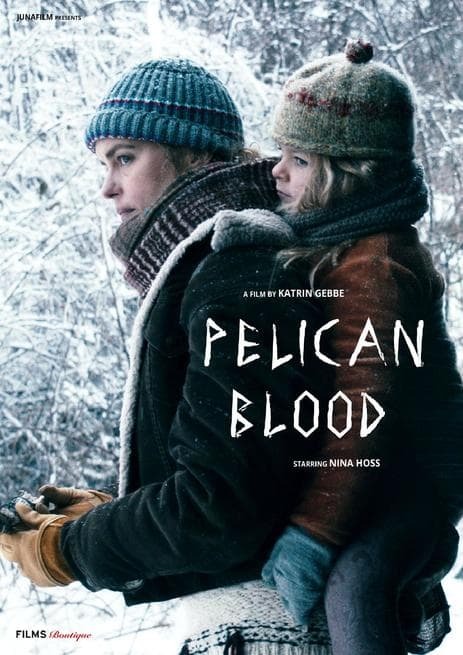
This is writer-director Katrin Gebbe's second feature, a fact that will astonish you when you see it. Last Blogtober, I wrote about her first feature TORE TANZT, which has the troubling english title NOTHING BAD CAN HAPPEN. That intense indie drama concerns a born-again christian punk who wishes for an opportunity to prove his devotion to god, and finds it in the form of a family that invites him in off the streets, and then proceeds to torture him. That's an oversimplification of what actually occurs, but it is a film that's hard to be brief about. It's cheap and a little rough around the edges, but it is deliberate, intense, and difficult to forget. (In fact it's supposed to be based on a true story, although I haven't managed to pick up that trail) When I first saw it, it certainly made me wonder what else that director might be up to, and I was astounded when I found out. 2019's PELICAN BLOOD emerged six years after TORE TANZT, with little in between besides a television episode and a segment in the anthology THE FIELD GUIDE TO EVIL, and yet Gebbe's artistic evolution is dumbfounding. Her themes are all unmistakably present--faith versus doubt, mystical versus metaphorical experience, and physical martyrdom--but exploded into a grand, elegant psychodrama that holds the viewer captive every minute of its two hours.
Celebrated german actress Nina Hoss plays Wiebke, a stable owner who trains police horses to tolerate the frightening conditions of a riot. She lives at the edge of her pasture, raising her tween daughter Nicolina (Adelia-Constance Giovanni Ocleppo) on her own. Wiebke has a talent for healing the wounded, or perhaps it's more of a calling; she raised Nicolina, a bulgarian orphan, into a bright, balanced, emotionally available tomboy, and the two of them joyfully anticipate the arrival of Nicolina's new adoptive sister. When little Raya arrives (Katerina Lipovska), she first presents as sweet, even solicitous, needing only a mother's love to fully bloom. However, as soon as she determines that she is welcome and wanted, she undergoes a disturbing transformation into a violent and unpredictable creature, possessed by an abject hatred. Wiebke recognizes that her new child is seriously traumatized, which activates her sense of purpose, and she pledges herself fully to the child's recovery--despite the admonishments of Raya's daycare, her doctors, and virtually everyone around them, that the little girl is beyond all but clinical help, and even that promises no guarantee of salvation. Refusing to give up, Wiebke makes a series of increasingly dangerous personal sacrifices in Raya's name, until finally she finds herself at the doorway to what some consider another world, but what is to others only madness.
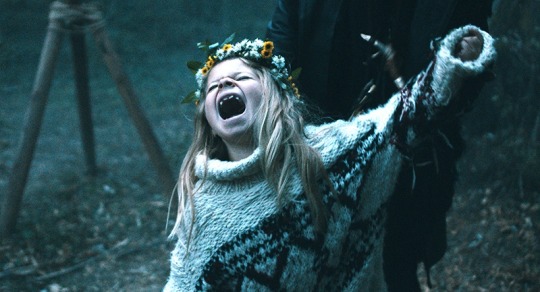
Gebbe won Best Director in the main competition at Fantastic Fest, and it would have been a crime if this were otherwise. Her control over what are essentially forces of nature is humbling. Extracting a profoundly moving drama from a cast of adult actors is challenging enough on its own, but to get these terrifyingly convincing performances from children, evoking deep trauma and physical violence to self and others, is another level. As if this weren't enough, Gebbe adds animals into the mix, giving the story of Raya a parallel in the troubled career of a police horse who is considered a lost cause by all but Wiebke. The training scenes in which Wiebke guides the volatile animal through fire and smoke, while her own lifeforce is being progressively depleted by her new child, are as harrowing as anything having to do with parenthood, and Wiebke seems to take the horse just as seriously as her child. Friendly single dad Benedikt (Murathan Muslu) tries to flirt with the trainer by remarking on her unusual career, but she spits bitterly, "The horses are not the problem," giving us a glimpse of the philosophy that drives her.
Another of my favorite german films is Werner Herzog's 1976 short NO ONE WILL PLAY WITH ME. This funny and poignant story involves a bullied and neglected little boy, and it is preceded by a card displaying the adage "There are no bad children, only bad parents." This is the principle that drives Wiebke in work and life: Those who are seen as failures, have been failed by others. One has the sense that Wiebke sees herself in these wretches. She has no partner, and balks at questions about her relationship history, shying from physical affection even with people she knows and likes. A tell-tale scar graces one cheekbone; when she finally begins to welcome the benign Benedikt's advances, he strokes it instead of kissing her, acknowledging that he can see who she really is.
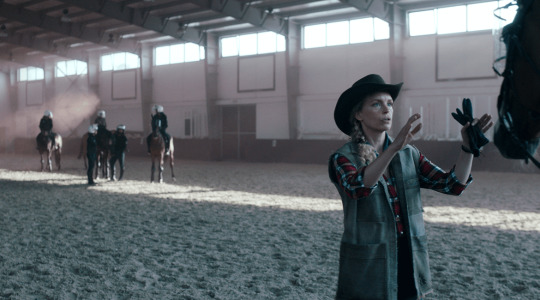
Wiebke tries to extend this same empathy toward Raya, refusing to let the child bait her into wrath and rejection. However, this show of pure faith and tolerance does not work, and the right approach becomes less clear as Raya begins to blame her mounting acts of vandalism, arson and assault on an evil entity that controls her will. A psychiatrist aprises Wiebke that this is the "magic period", in which the child uses magical thinking to divert feelings of guilt and responsibility. But, after a fashion, Wiebke begins to sense this malevolent presence as well. Is this etheric intrusion real? Or is she beginning to empathize with the child--with the experience of grappling with a damaged part of yourself--to the point of dissolving boundaries?
The title of the movie refers to a fable about a pelican whose chicks die, and she resurrects them by feeding them her own blood. This is a clear metaphor for Wiebke's trial with Raya, that becomes shockingly literal when, after endangering her home and relationships by prioritizing the new child, Wiebke places her own health on the line by taking an unregulated drug to give herself a bizarre advantage. When Wiebke discovers the shocking nature of Raya's original trauma, she experiments with the radical idea of treating the girl like a little baby, hoping to start from square one with her capacity to be mothered, and in the service of this dreadful proposition, Wiebke starts taking a lactation-inducing pill that proves to be an immediate risk to her health, and puts her in an even more perilous position with Raya.
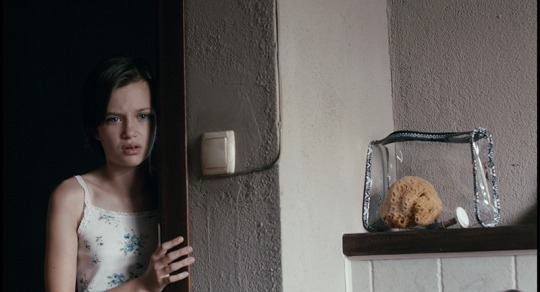
Although it focuses on a preternaturally devoted mother, PELICAN BLOOD recalls what makes movies like HEREDITARY and WE NEED TO TALK ABOUT KEVIN so potent. We have the idea that in becoming parents, we are perpetuating our own essence, extending our history and celebrating the precious connection of blood, which is supposed to impart an automatic same-ness. Unfortunately, this only shakes out to arrogance for many, denying the quirks of psychology, chemistry, and the unique impact of trauma--even if minor, or explainable as something benign--on a mind too young to fully comprehend the nature of the experience. Even without abuse in the home, anyone can have a child less like themselves than they could have ever imagined, for reasons beyond their own control. In all this, the child is innocent, and it is the duty of the parent to prioritize the child's feelings, over the vanity of wanting an heir to your own best qualities. Wiebke sacrifices not only her vanity, but potentially her very life, to show Raya love. When this blood sacrifice does not work, Wiebke finds herself facing the realm of alternative belief as a last resort.
The introduction of PELICAN BLOOD's folk horror element can seem a little left field, if you haven't noted the clues scattered throughout the film. Before the revelation of Raya's boogeyman, Wiebke begins to discover evidence of an old pagan tradition still being practiced around her proverbial neck of the woods. Soon, she tentatively entrusts herself and her child to a local witch, who puts them through a harrowing exorcism. Though the process is uncertain at first, its impact forces Wiebke into a direct acknowledgment of the entity harassing her daughter. And ultimately, it awakens in Raya a capacity for love.
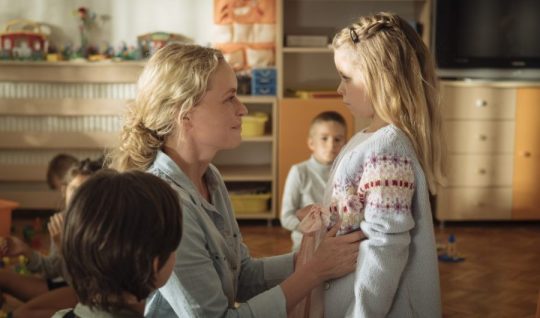
While the reality of the supernatural in PELICAN BLOOD remains in question, I think the effect of this ambiguity is specifically meaningful. I usually scoff at any type of "was it all a dream?" nonsense, as this is a tactic employed by directors who think their greatest accomplishment should be getting one over on the audience. I don't see any inherent value in simply reversing the apparent meaning of things, just to make people feel stupid--and worse, this has trained modern audiences to try to defensively predict the least likely ending to any story, instead of just engaging with it emotionally as it plays out. For this reality-bending trick to be worth anything, one must be able to answer questions like, IF this was all a dream, THEN what meaning is added to the story?
In PELICAN BLOOD, the unresolved question of whether magic is real is of great relevance to the whole concept of belief. Human beings crave extranormal experience; we're deeply attracted to tales of ghosts, UFOs, mythical creatures, and parapsychological abilities. Even the skeptics among us enjoy arguing about these things, and many regular folks without eccentric interests read their horoscope "just for fun". Most telling of all is the enduring popularity of stories about the strange and unusual, which require no particular belief system from the audience; the fantasy of this extra dimension to our mundane lives is just so satisfying. Despite all the pleasure we get from these ideas, though, we tend to cling first and foremost to objective truth; we tell ourselves that if there is no "proof", then an outrageous thing cannot exist. But, this is actually contrary to many of our lived experiences. On the basest level, we delight at videos of insane parkour stunts, at the same time that we say these guys are "like" superheroes, but are actually just guys. My question is, what's the difference? If a person can achieve physical feats that most of us can never imagine attempting, then what difference does it make that this person was not bitten by a radioactive spider? If a fortune teller in a carnival is so good at "cold reading" strangers that she gives the effect of being able to read minds, then what is the appreciable difference between a carny and a "real psychic"? If a faith healer "just convinces" someone to become free from a chronic ailment, and the patient goes on to live a happier life, who cares if no "real magic" was in evidence? What is the difference between exorcism and hypnosis, if the end result is the same for a seriously disturbed child and her mother? The only difference appears to be some material confirmation of specific mystical forces and substances--which, admittedly, would be exciting on its own--but this would still only be an alternative version of the events that led up to the same "miraculous" result. We only worry about the existence of God and magic because our definitions of these things tend to be limited to what we think of as literal and scientific. But, if the correct effects manifest themselves, then all that is purely cosmetic. Belief is real. Faith works.
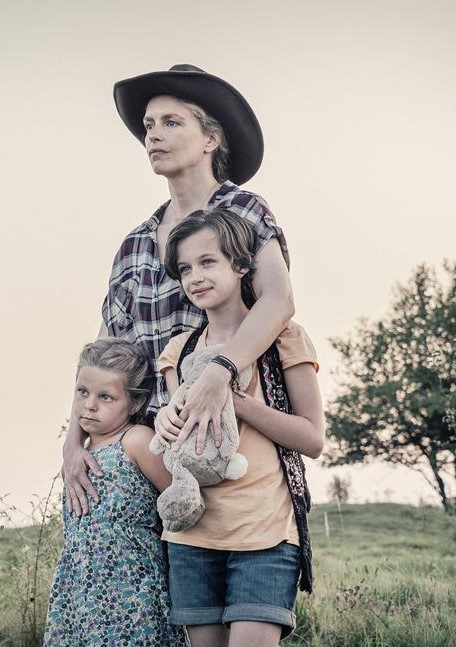
#blogtober#2020#pelican blood#pelican blood 2020#katrin gebbe#nina hoss#Adelia-Constance Giovanni Ocleppo#Murathan Muslu#Katerina Lipovska#drama#folk horror#witch#witchcraft#exorcism#possession
9 notes
·
View notes
Text
Essay of the North: Dragons, Masks, Ghosts, and Despair
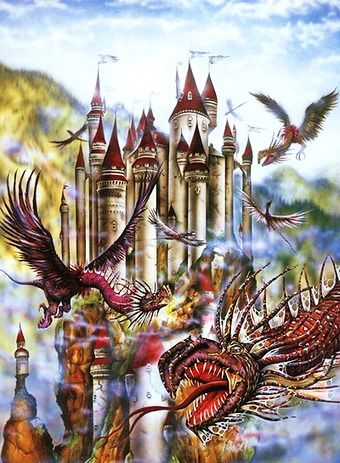
Welcome to the next part of my essay about the Four Sister guardians. This one actually focuses on the sister guardians as individual characters. The thing that first drew me to these four characters as a subject matter is how thematically relevant they are to each book. In my opinion, each of the four books in the third Deltora Quest series has a central theme: in Dragon’s Nest it is dragons, in Shadowgate it is masks, in Isle of the Dead it is ghosts, and in Sister of the South it’s despair. Each of the guardians does a lot to tie these themes together, and each can be seen as sort of an embodiment of that theme, at least of the darker aspects of it. Another interesting thing that ties each of the sister guardians together is that each is a reference to another character in mythology or fiction, so I’ll talk about that here. The guardians are all beings of decay and subversion, so each is a subversion of some classical cultural archetype. Each of these characters, by being so thematically significant, help set apart the third series of Deltora books as a more powerful, resonant story than most youth fantasy stories.
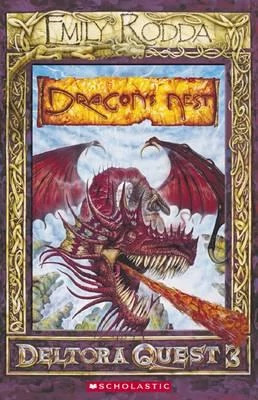
First let’s start with Rolf the Capricorn. He is the antagonist of Dragon’s Nest, the start of the series. The main theme of Dragon’s Nest is the dragons themselves, and the crux of the story is Lief struggling with understanding these ferocious and powerful creatures. At the start of the story few in Deltora understood the dragons and their role in the ecosystem, so Lief has to learn if he can trust them as he embarks on a quest where they play an integral role. The dragons represent the harsh but important aspects of the natural world. From a distance they seem like dangerous monsters, but are actually vital parts of the environment in Deltora and must be respected. Although people fear them, they are actually keeping Deltora safe and balanced. The first test Lief faces in this series is reconnecting with the dragons and earning their trust.

Rolf is the embodiment of distrust and fear of dragons. Like the dragons, he is the remnant of a long-gone part of Deltora’s history, but not a part that should be brought back. His people are the biggest victims of the dragon’s rage, an entire society laid to waste by their fury. However, the fate of Capra is not what it seemed. In actuality the Capricorns were driving the dragons to extinction, and their obsession with beauty and artifice led to their destruction. They are a warning to the people of Deltora, an example of what will happen if they do not coexist with nature. But Rolf has nothing but resentment for dragon’s and all they represent. He has no interest in the modern state of Deltora, obsessed with a past that will never come back. He is deeply xenophobic, not just towards dragons but to all non-Capricorns. He would rather see the nation destroyed than integrate with it, helping the Shadow Lord doom Deltora to the same fate as Capra.
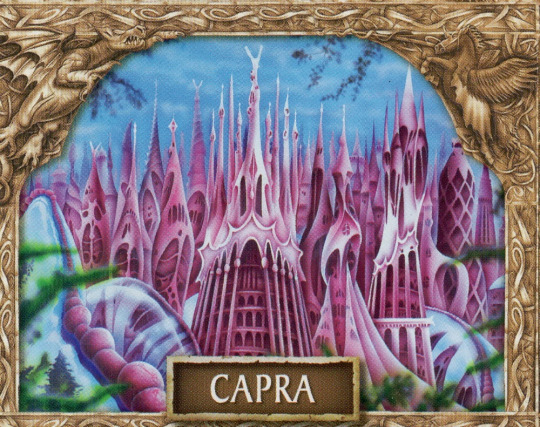
Fittingly, he takes the form of a false dragon. His appearance is described as hideous, like something our of a fever dream. He represents everything people feared about dragons, with none of their natural beauty. He seeks to exploit people’s reservations about working with dragons, making Lief question whether he can count these mysterious beasts as allies in his quest. His ultimate goal was to make it appear that the Ruby Dragon had joined the Shadow Lord as the guardian of the Sister of the East. Every step of the Shadow Lord’s plan with the Sisters was to convince the King of Deltora to abandon his quest. In this case to stop the quest before it even started, he cast doubt on the ability to work with the dragons at all. Rolf’s role in the plan was to drive Lief to abandon Deltora to the same fate that befell Capra.

Rolf is obviously based on a satyr form Greek mythology. He can be seen as a dark mirror to Pan, the greek god of nature. Pan was a being of music and sexuality, an amusing contrast to Rolf’s cowardly, pathetic persona. Over time Pan came to be associated with Pagan and Satanic beliefs, fitting given that Rolf is not what he appears to be. Rolf can also be seen as a parody of Mr. Tumnus from the Chronicles of Narnia. Mr. Tumnus was a faun encountered very early by the protagonists, and was a helpful guide for them. Lief and his companions also encounter Rolf pretty early in their adventure, but he is far from helpful. Although Rolf bears a physical resemblance to various goat-men throughout history, his personality and goals are the opposite of almost all of them.
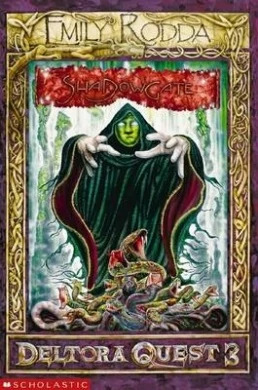
The next guardian is Kirsten of Shadowgate, also known as the Masked One. Masks are the central motif of Shadowgate, with various types of masks being used by different characters for different reasons. Masks are used to hide your real identity with a new one of your own creation. The Masked Ones use their masks to turn on their old identities and create a new one for their new society. Laughing Jack can be thought of as wearing a mask in the form of his fake persona. Lief struggles with having masks placed on him against his will, overriding his own identity. Lief is shown for the first time a possible other life, one without the responsibilities and hardship of being the king, but with nor personal freedom.

It starts off with his physical resemblance to Bede, which drives Bess to force him to take the place of her son. At first Bess’s projection of Lief begins simple enough, making him learn to sing like her son did. Lief is too kind to turn her down, and finds himself being drawn deeper and deeper into the Masked Ones. This culminates in him having a mask literally forced onto his face, and he has to tear it off to regain his own identity. The result is a horrifying experience for him in which he briefly loses his mind, and ends with him scarring his face. These scars are a reminder of his experience, and also serve as a permanent physical distinction between him and Bede.
The book is structured to make you think Bede is going to be the antagonist, serving as a dark reflection of Lief. However, Bede is revealed to be a victim of the real villain, Kirsten. A character barely mentioned earlier, who nobody in the story thinks very much about, is the one behind everything. Kirsten is interesting among Deltora antagonists in that she begins affecting the plot very early on. Long before the heroes find her or even know of her existence she is pulling strings to drive the plot. The obstacle Lief must destroy in this story is not a reflection of his own identity, but someone who has removed their own identity completely. There are many masks in Shadowgate, but none as elaborate as Kirsten’s.

From what we know of Kirsten’s past, it sounds like she spent a lot of life being overlooked by others. Despite being beautiful, her face was paid attention to, so she created a new one. However, Kirsten is different from the rest of the characters in that both of her identities are “masks” and in her double life both of her personas are artificial. Her phantom is the embodiment of her allegiance to the Shadow Lord, a mask that moves on its own. The Masked One is a projection of her power and rage without having to reveal her true self to anyone. Her victims get no insight into the person killing them. She twists the culture of the man who rejected her, taking the form of a mask with nothing beneath it. But the version of Kirsten Lief and the others meet in the castle is also a “mask.” Its how she sees herself and wishes to be seen by others, but is just as fake as her phantom. Her external beauty disguises her horrific nature, and she forces Bede to live in her pretend reality with her. Her castle is an extension of this illusive reality, a world under her control that disappears upon her death. Appropriately she has reduced the other object of her rage, he sister, to nothing but a face by trapping her in a locket. Mariette no longer has a physical presence in the world, but still has all the things Kirsten will never have.

It is hard to look at Shadowgate and not see the influence of the Phantom of the Opera. The Masked One bears a physical resemblance to the Phantom, and murders performers to keep imprisoned a beautiful singer. Kirsten is a twist on character of Erik, wearing the physical appearance of Christine but performing the horrific action of the Phantom. Piecing together her identity is a key part of the plot, though the protagonists do not realize there even is a mystery until the end. The Masked One does not hide the image of a face burned by acid, but that of a beautiful women. Amusingly, Lief’s journey in this novel can be compared to Christine’s. Like her he is tutored in signing by a charismatic but untrustworthy figure in a mask, and he ends up with facial scarring like Erik. Also, while singing is used in Phantom of the Opera to communicate and empathize with the Phantom, in Shadowgate it is used to transmit coded warnings about the villain.
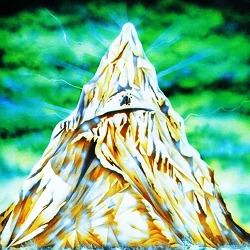
Isle of the Dead is about ghosts, the various ways in which the dead and action of the past still haunt us in the present. The most literal example of the ghosts of the past is Verity, and actual ghost keeping record of dark deeds past. Laughing Jack is on the run from the ghosts of his past, literally and figuratively. He can even be thought of as the “ghost” of James Gant, an identity left behind by a man who still wanders the world in search of something. Bone Point and the Lady Luck are places forever haunted by the dark memories of what happened there, showing Lief and the others a recording of it they cannot interact with. Lief and Barda free themselves from the Lady Luck by “correcting” the events of the past, and their battle with the Sister of the West requires they put together various other ghosts, like Verity’s memories, Doran the Dragonlover, and the Diamond Dragon.

In Isle of the Dead time is portrayed as all-consuming and unforgiving, and the effect of entropy on this story makes the protagonists feel like they are becoming ghosts too. The Sleeping Dunes show how a moment of passivity can lead to you being erased from history and forgotten, like the Amethyst Dragon was for years. Blood Lily Island shows how the passage of time can slowly destroy you. The island looks harmless but it slowly kills you without you even noticing (Rodda thought she could slip a little metaphor for despair past me here too- not on my watch!) Even the mighty dragons are shown to be vulnerable to the power of eternity, with Veritas being trapped by the Sleeping Dunes and the Diamond Dragon being stripped to bones by fleshbanes, which grew to great numbers during her sleep. The Lady Luck shows how you can’t escape the past or the passage of time. Its’ victims were doomed to eventually lose more than they can afford, and its pursuit of Lief and Jack makes them literally unable to run from the past forever. Isle of the Dead is a book concerned with eternity, how the passage of time destroys but also preserves people and ideas.
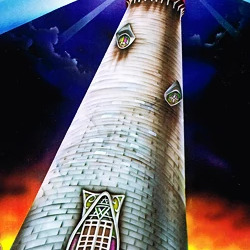
Doran is not quite a ghost as he is more undying than undead. He has guided Lief and the others through most of their adventures, and the memory of his actions is a great tool for them. However, each time they encounter someone who remembers Doran, they explain that he is long dead and the world he live din has changed. But Doran has been here the whole time, a final taunt from the Shadow Lord. In order to complete his life’s work, he must be destroyed by those he inspired. Doran’s actions are great allies to the king of Deltora, but the man himself is turned into an obstacle. The purpose of this design was to discourage anyone trying to destroy the Sisters, making them feel like they had to destroy their own history and what they hold dear.
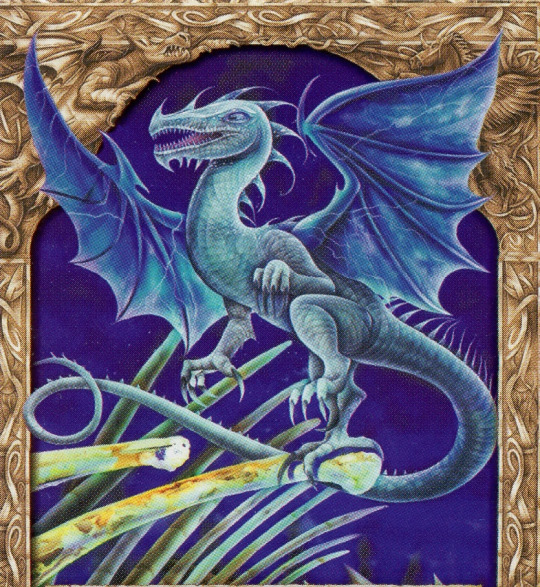
But there is another “ghost” which provides Lief the opportunity to triumph over this challenge: the baby Diamond Dragon. Named after her mother, she shows how the legacy of the past is transferred down to new generations. Discovered on her mother’s bones, she is a glimmer of hope in a quest that seemed doomed. She shows that even as the heroes and icons of the past fades away, their legacy lives on in new generations. Just as Forta carries on the legacy of the Diamond Dragons, Lief carries on the work of Doran. The discovery of Forta allows Lief to beat the Shadow Lord’s trap. Doran’s last moments are of hope, not despair. He was meant to create depression about the past, but his death is a moment of hope for the future.
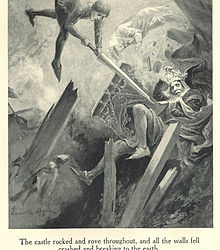
The revelation of Doran as the guardian of the Sister of the West is a shocking one, a twist on the usual pattern of these books having a battle with a big creature at the end. But those familiar with Arthurian lore perhaps should have seen it coming. Doran is an example of the Fisher King archetype. Many versions of the Fisher King appear in the tales of King Arthur, and many modern fantasy tales that follow the structure of those stories use a similar character. The Knight of the Grail in Indiana Jones and the Last Crusade is an example, and Azor performs a similar role in the Ixalan story for Magic: The Gathering. The Fisher King is the final guardian of the Holy Grail, a spiritual and mental challenge after a gauntlet of physical one. The Fisher King is a king who possesses the Holy Grail, but has been cursed by the eternal life it provides. The Fisher King is kept in an immortal but crippled state, forced to watch the land around him with as he lacks the strength to protect it. To retrieve the Grail Percival must let the Fisher King pass away and rest by proving he can protect his kingdom for future generations. Lief does a similar thing by revealing Forta to Doran and letting him finally rest knowing their is hope for the future of Deltora.
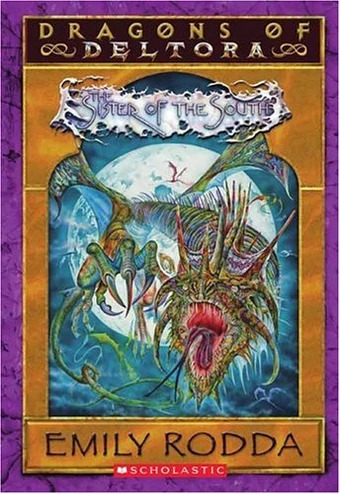
Sister of the South is a story about despair, a theme that has been running through the previous novels but takes center stage at the end. Lief’s journey in series three has slowly been eroding his faith that he can protect Deltora and be a good king. The final Sister is the ultimate challenge to his confidence, and the final phase of the Shadow Lord’s plan is to make his believe there is no way he can win. The endgame is to create a scenario where the land is condemned to die one way or the other. But to build up to that dilemma is a series of challenges to Lief’s optimism, both in his belief that Deltora can be saved and whether it even should. The Shadow Lord does this by guarding the last Sister with an embodiment of Deltora itself, manifesting the cultural flaws of the land into a plot to destroy the kingdom from within.

How fitting it is that after battling all sorts of hideous monsters, the last battle for the fate of Deltora is against a common citizen. The story of Deltora began when the Shadow Lord exploited the societal weaknesses of the city of Del to seize power, and the climax involves history repeating itself, raising the question if Deltora will ever be strong enough to oppose the Shadow Lord. Paff is the ultimate test of Lief’s abilities as king, challenging him not as an adventurer but as a politician. She turns the citizens of Del into her own weapon, presenting them with a threat their king cannot protect him from and drives them to seek shelter in paranoia and ethnic tension. Lief is forced to question his abilities as king when that question is being posed by his own citizens. And of course Paff herself is a citizen of Deltora too, representing all of Lief’s failures in a single person.
Paff is such a tragic figure because, even though her crimes were horrific, it’s easy to understand what drove her to the Shadow Lord. Nobody, absolutely nobody, treats her with kindness or respect. She was alone and unloved. Lief rescued her from the Shadowlands, but never gave her a feeling of freedom. Yet he never suspected anything was amiss with her, unaware that a deadly enemy was hiding in plain sight. Lief was unable to help Paff but also unable to understand her, never imagining that she was capable of such horrors. Of course, Lief never imagined ANY of his citizens were capable of creating the fake plague, and realizing that it must have been done by one of his subjects but not realizing who it could be was agonizing for him. Paff created a wave of despair within him by forcing him to wonder which of his subjects was a traitor, and that any of his allies could be his enemy. Her plan involved destroying the trust of the people of Deltora in each other, in their king, and of the king and his people.

The end result of Paff’s machinations is Lief’s lowest point. As he encounters the Sister of the South he realizes he is no different from his enemies. He could have gone down the same path they did, and is tempted to do so at the end. He is as imperfect as the rest of Deltora, and in order to save the country he must destroy one of its citizens. Let Lief’s empathy gives him strength. Even after all Paff has done, Lief still has pity for her. Realizing how similar they were let him understand her pain, and he gave her an opportunity to atone, even after all she did. Yet the Shadow Lord revealed himself unwilling to provide such mercy, taking Paff’s powers and throwing her aside like a used tool. Paff had given too far into despair by this point, and rather than be redeemed she destroyed herself with the greatest symbol of the country she betrayed.
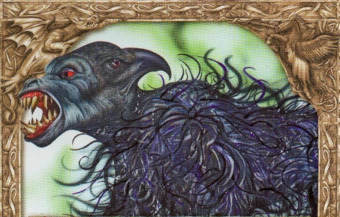
Before we talk about the cultural references baked into Paff’s character, I’d like to talk for a moment about the creature she controlled, as it is pretty unique among Deltora monsters. Like the Masked One, it is an extension of Paff’s power, its horrific appearance and strength contrasting the unassuming, harmless appearance of its controller. It is a creature of black oil, its lack of shape representing the hidden, insidious threat to the kingdom. It can attack several people at once in all directions, representing how Paff’s plot endangered every level of Deltoran society. The two heads are an unusual feature, unlike anything else in Deltora’s bestiary. The heads being a dog and a bird lack any biological purpose, suggesting that its appearance is more about symbolism than biology. As strange and varied as Deltora’s monsters are, all of their appearances served some sort of purpose. The creature Paff summons feels more like something from ancient myth or religion, not something that belongs in the natural world. It brings to mind the two-faced Roman god Janus, or the cherubim, and angel with the heads of a man, an ox, and eagle, and a lion.

The more mythical appearance of Paff’s creature got me thinking, and I’ve come to the conclusion that the cultural icon Paff references is the last book of the Christian Bible. The Book of Revelations, also known as the Book of Apocalypse, is a complex and confusing part of the Bible, so I’m going to tread lightly here. The book presents a vision of the end of the world, with human society being destroyed and the people of earth being judged by God. Appropriately, the Sister of the South features an apocalyptic scenario with the grey tide, a final judgment for Lief and the people of Deltora. More specifically the Book of Revelation describes two beasts that bring down human civilization, which I think are inspirations for Paff and her creature. The first beast is a huge monster made up of different animal parts, like Paff’s creation. It caused people to follow it, like how the people followed Paff’s propaganda about the plague. The second beast is a false prophet, which “breathed life” into the image of the first beast, and brought death to those who would not worship it. Paff herself is clearly a parallel to the second beast. Yet like all the other guardians, the story that Paff references is subverted by her. The Shadow Lord’s plan is based on an apocalyptic story he participated in, and he seeks to put the people of Deltora in the same position with the Grey Tide. The first beast was described as a seven headed dragon, yet it is seven dragons that save Deltora, rather than destroy it. Fittingly, unlike in Revelations the land of Deltora is not destroyed, and Paff fails to overthrow society. The “prophecy” the Shadow Lord created does not come to pass, and the despair his plan weaponized is defeated by hope. The story ends on an optimistic note detailing a long era of peace and tranquility.
These four characters are twisted and sad people, sympathetic yet dangerous. They are representatives of the failures of Deltora, tools for the Shadow Lord to destroy the kingdom from within. Lief’s journey to destroy the Four Sisters is about him coming to terms with the weaknesses in himself and his kingdom. Every step of the way he is shown that he cannot save the kingdom without destroying parts of it. Each of these characters are examples of what Lief could become, and he has prove himself different from them in order to succeed. As Lief battles them externally he is forced into an internal battle, one that has been building up over the course of the series. That will lead us to the next essay, about Lief’s psychology and why the Four Sisters quest is such a difficult and personal one for him.
31 notes
·
View notes